32 simple stretches and classic yoga poses to help keep you mobile
Boost your flexibility with these simple stretches, no equipment necessary


With busy schedules and endless to-do lists, when it comes to squeezing in time for a workout, many of us tend to think the harder, the better.
It's not uncommon for people to choose to blast through a HIIT workout or do something that really gets the blood (and endorphins) pumping. And while this isn’t necessarily bad, it often means we focus on the fat-burning, high-intensity stuff and don’t make time for stretching.
Stretching is essential in limbering up our muscles, strengthening our cores and keeping us flexible and mobile. Doing stretches consistently may also help reverse muscle shortening that happens when you are in the same position for too long (such as sitting at a desk all day) and combat any aches and pains that arise as a result.
So don your best workout leggings and try out these simple stretches...
32 simple stretches to help keep you mobile
Easy Pose
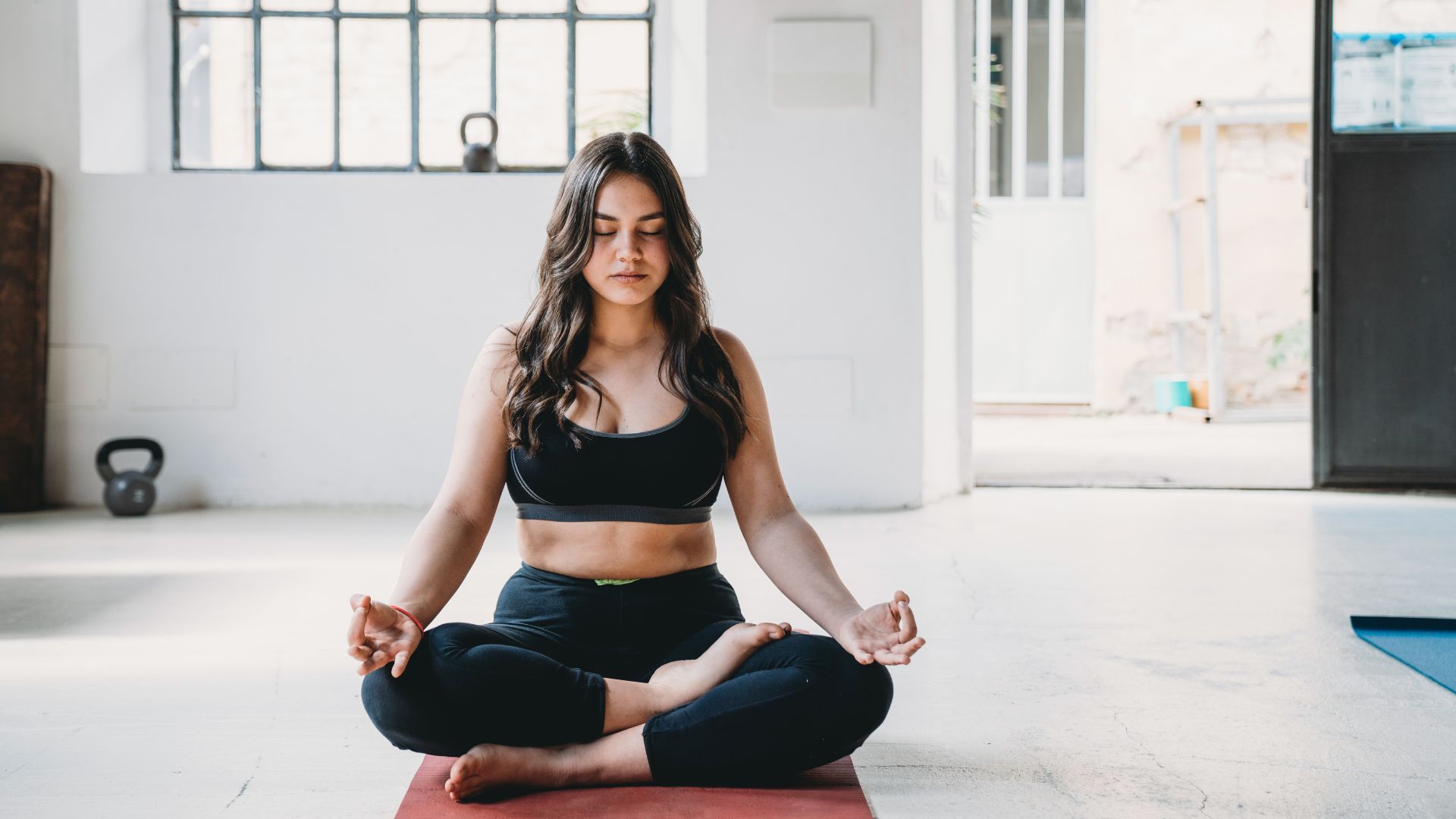
Called the Sukhasana Pose by traditional yogis, this is a stretch that has been used for centuries as the preferred posture for meditation. The pose, which requires you to sit with your legs crossed and one resting on top of the other, engages your core and back muscles, helps stretch the hips and ankles, and strengthens your back and abdominal muscles.
Make it easier for yourself if you struggle by sitting with your back against a wall or door to begin with.
Child's Pose
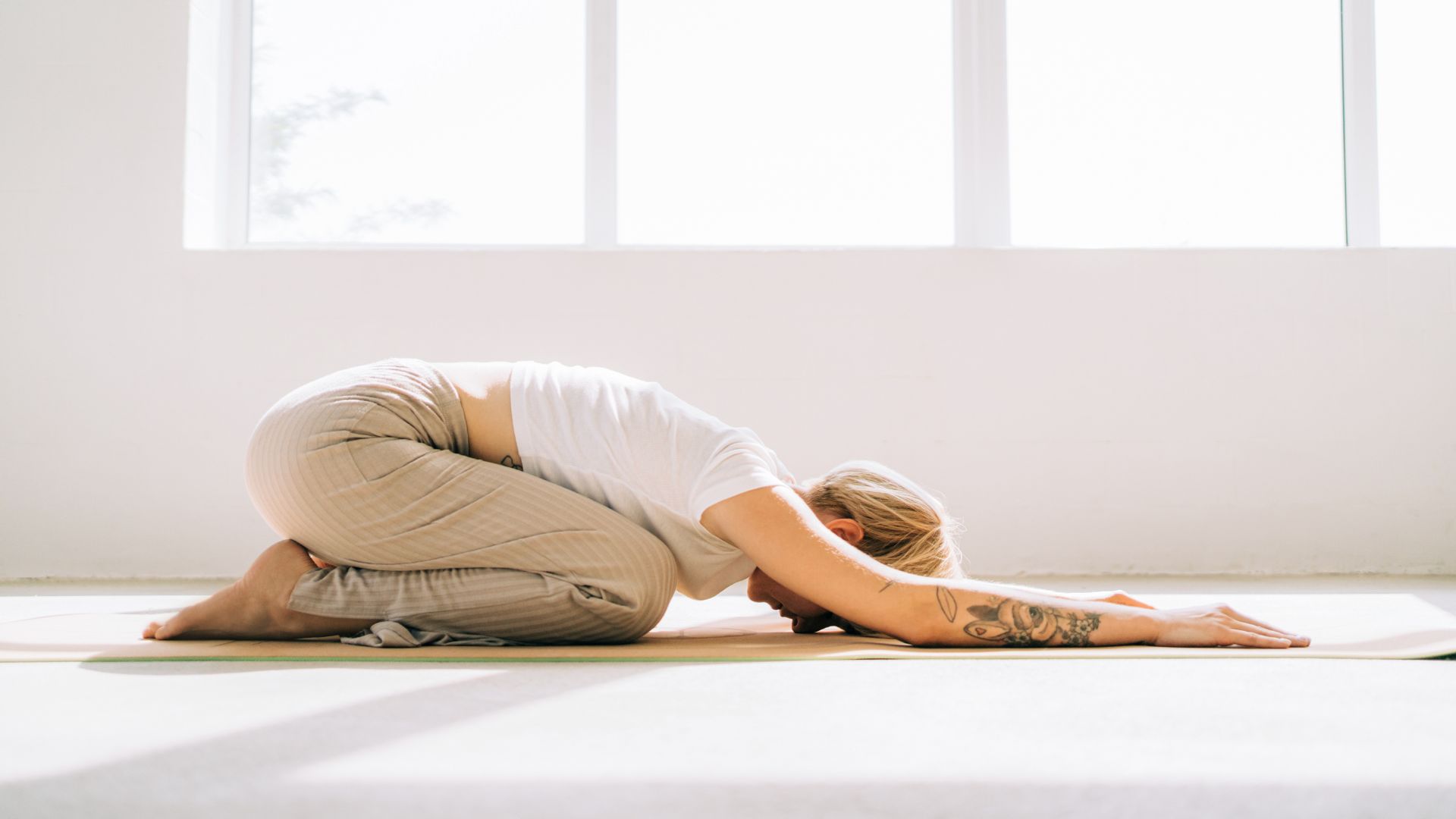
Called Balasana to yogis, Child’s Pose helps to stretch your back and keeps the muscles around your hips looser and more flexible. To do the pose, kneel and sit on your knees. Lean forward, keeping your buttocks on your heels or as close as possible, and rest your forehead on the floor.
Sign up to our free daily email for the latest royal and entertainment news, interesting opinion, expert advice on styling and beauty trends, and no-nonsense guides to the health and wellness questions you want answered.
Move your arms so they're next to your legs, palms facing up. If you can’t quite reach your head to the floor to begin with, you can rest it on a yoga block or a pillow.
The plank
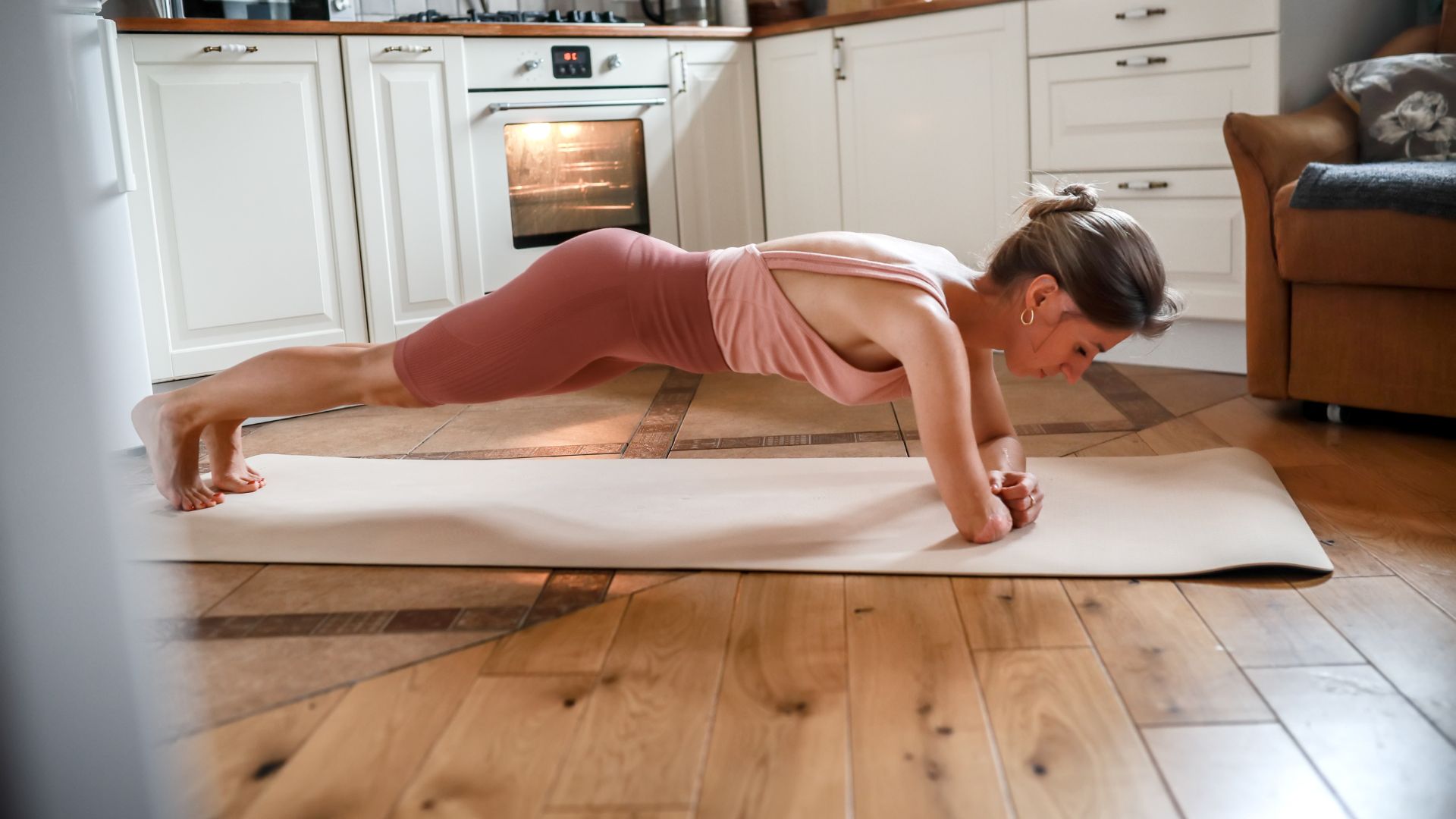
Simple to follow but deceptively challenging on the body, the plank comes with numerous benefits for our extended mobility and strength. The exercise encourages us to focus on our core, making us aware of how it feels when we are properly engaged, something which will be important to avoid injury when performing other exercises.
To do a plank, hold yourself up on the ground with your forearms and toes, keeping your back and legs as straight as possible. Aim to hold it for 60 seconds, or work your way up to that milestone.
Thread the Needle
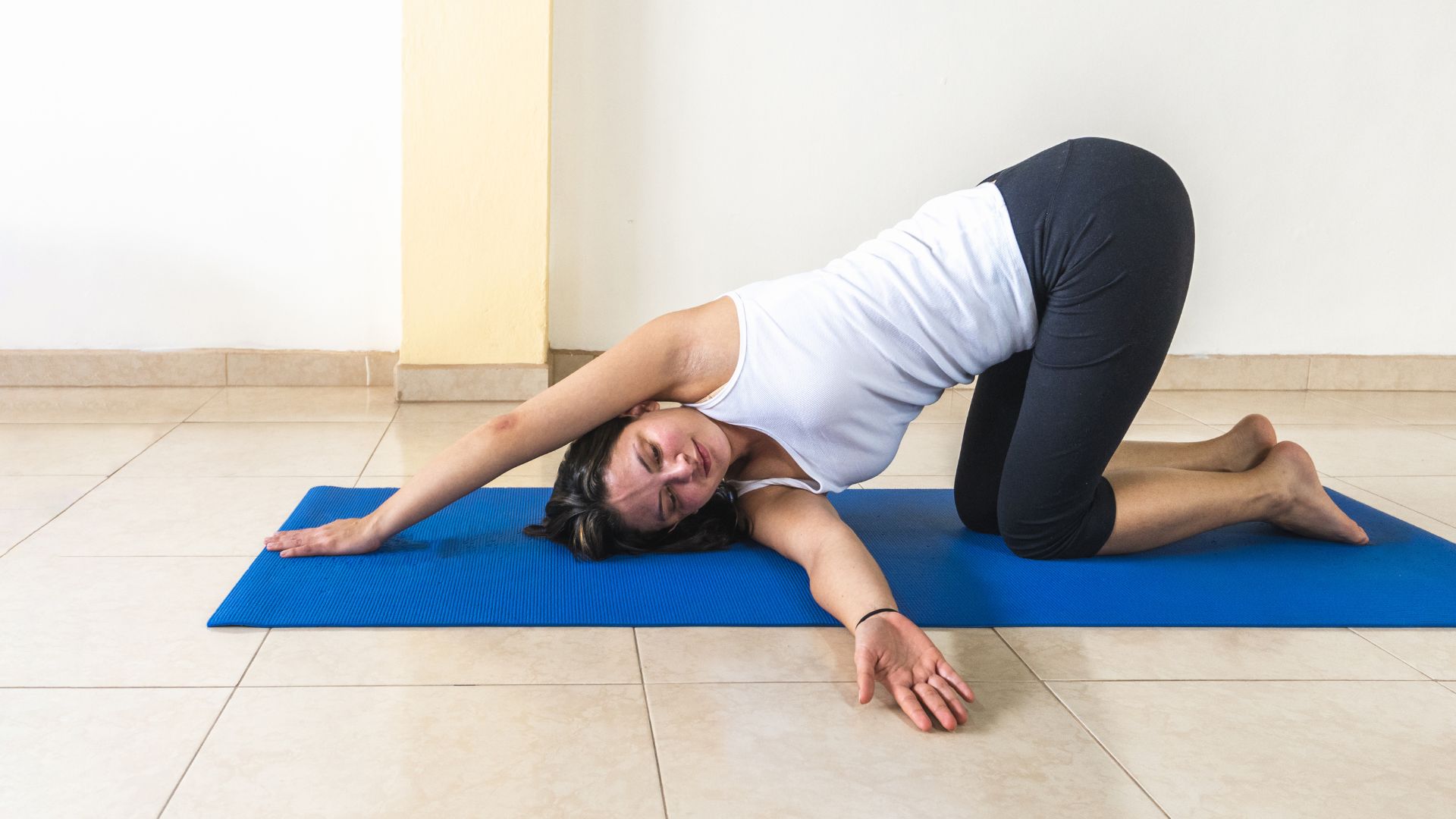
A great stretch that opens the upper chest muscles, shoulders, neck and upper back, the Parsva Balasana pose (Thread the Needle) can be performed any time of the day with reps of ten stretches on each side.
To do the stretch, start out on all fours. Then reach your left arm underneath your body, reaching to the other side, between your right wrist and right knee. Move your left shoulder and left temple toward the ground, allowing your hips to sink back toward your heels.
Keep your right hand where it is, and then, after stretching, move your left arm into the air, following it with your head and eyes, holding this for about three seconds before repeating on the other side.
The triangle pose
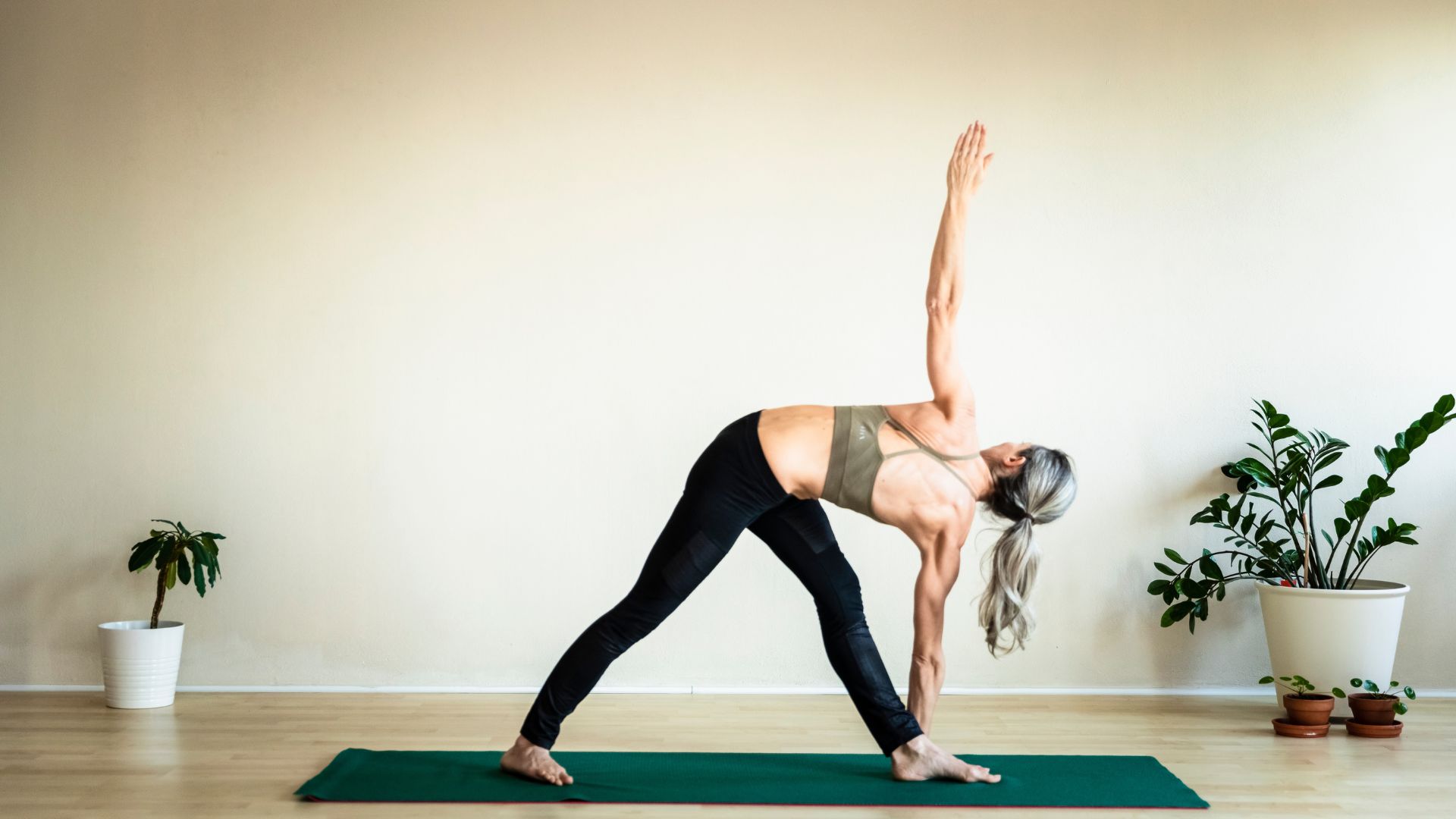
Place your feet across the length of your mat so that you are facing sideways. Turn out your right thigh bone so that the right toes point forward. The back foot should be turned in to face the same direction as the right foot. Both heels should be aligned. Lift through the arches of your feet while rooting down through your ankles. Stretch your arms wide and reach up high.
Toe-to-wall calf stretch
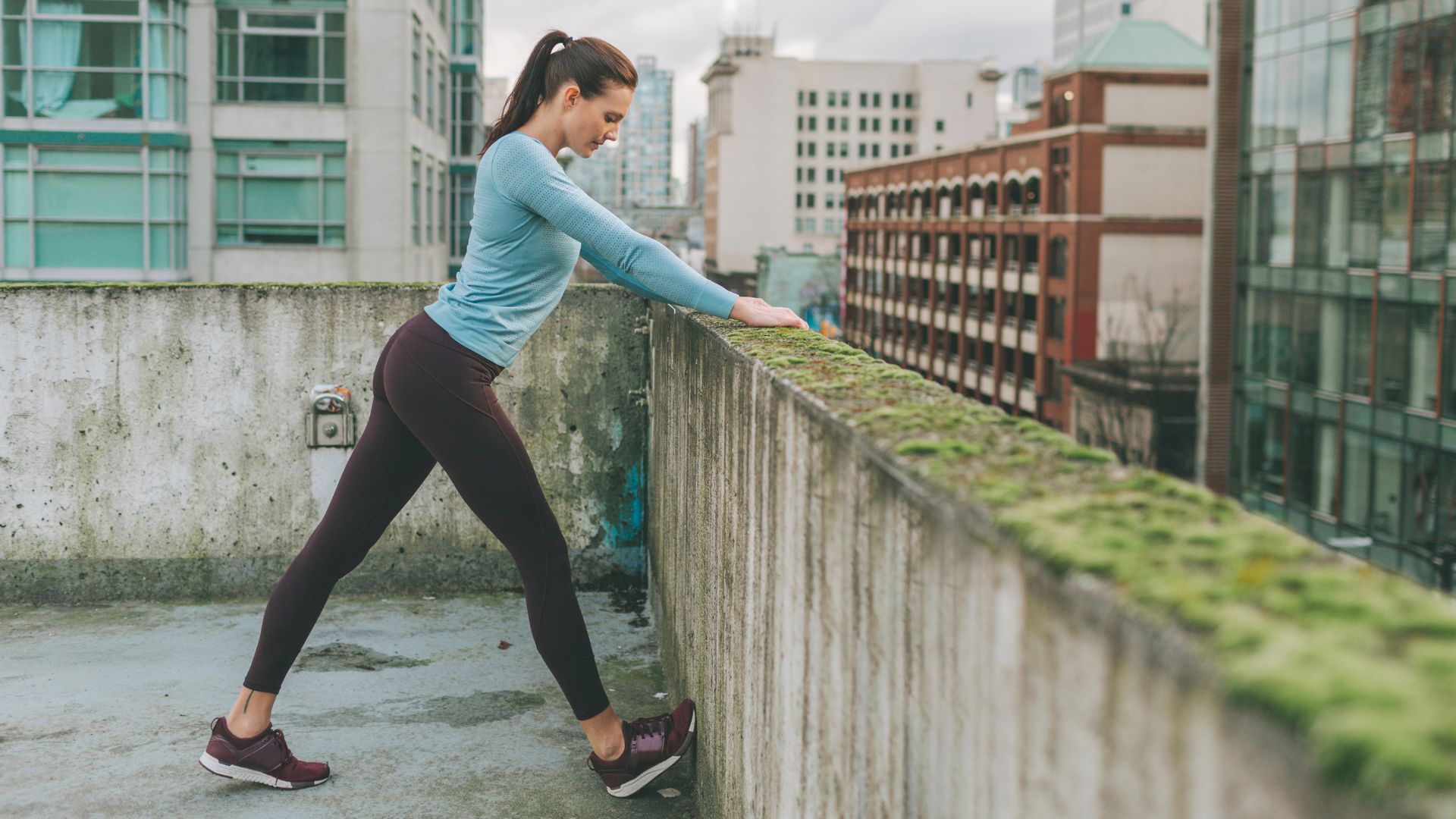
A very easy stretch to try and incorporate whenever you get a chance, this stretch can help loosen your calves and tackle pain around the Achilles tendons. All you need to do is, first, find a wall or solid door. Stand facing it and put the toes of the foot you want to stretch up against it. Keeping your heel on the ground, shift your weight forward until you feel a stretch to the calf or the Achilles tendon. Hold for 30 seconds each time.
Cow Pose
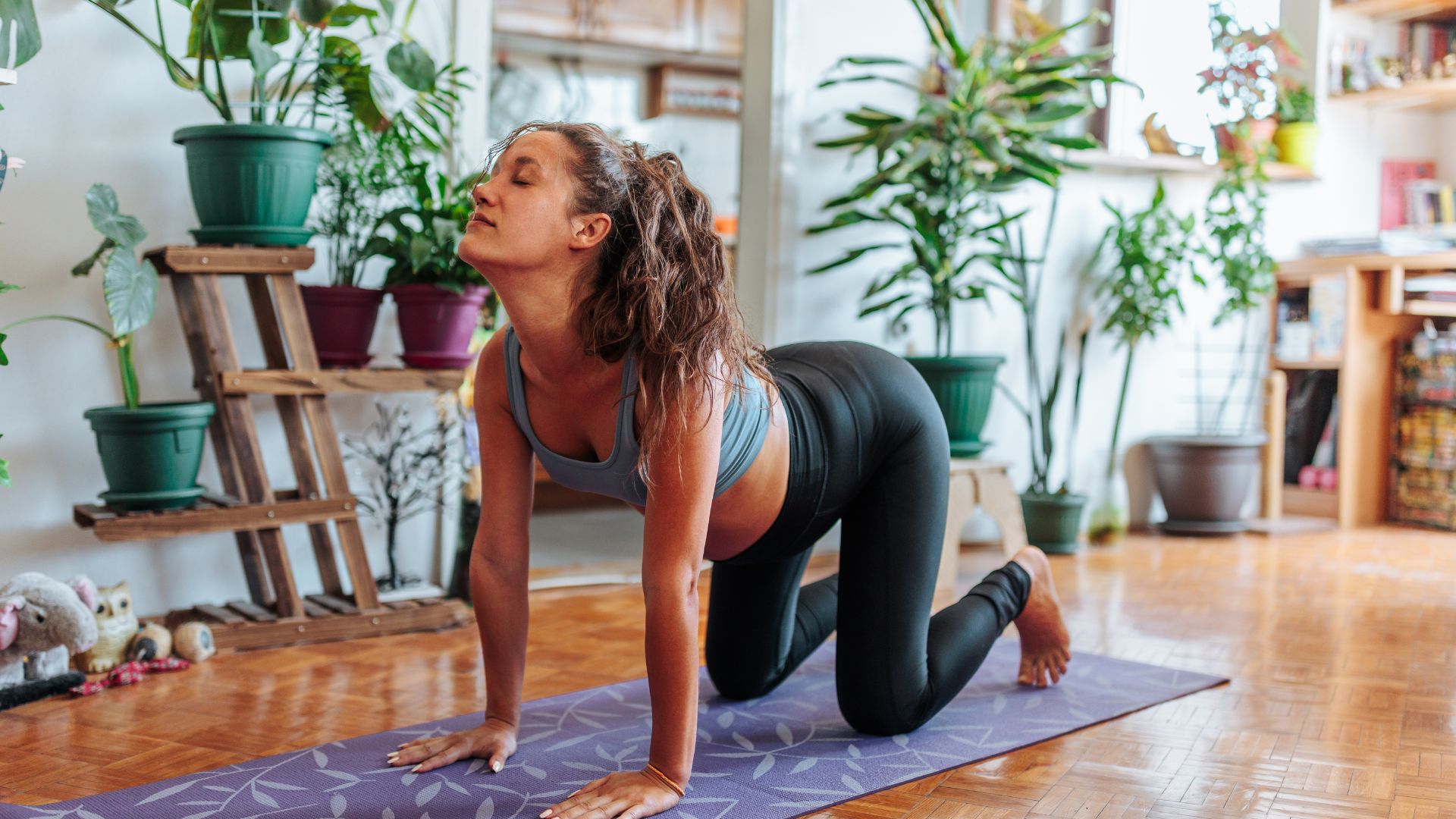
You might hear yogis refer to this as Bitalassana, and it’s an excellent stretch for strengthening your core and benefiting your ankles, hip flexors (which we use every time we take a step), thighs, back and shoulders.
To do the pose, get on your hands and knees, with your knees under your hips and your hands shoulder distance apart. Breathe in and as you inhale, lower your stomach to arch your back.
As you’re doing this, simultaneously lift your chin and chest, focusing on lengthening the back of your neck and keeping your abdominal muscles engaged. Hold for up to 30 seconds, or whatever feels comfortable. When coming out of the pose, return to a neutral position on your hands and knees.
Cat Pose
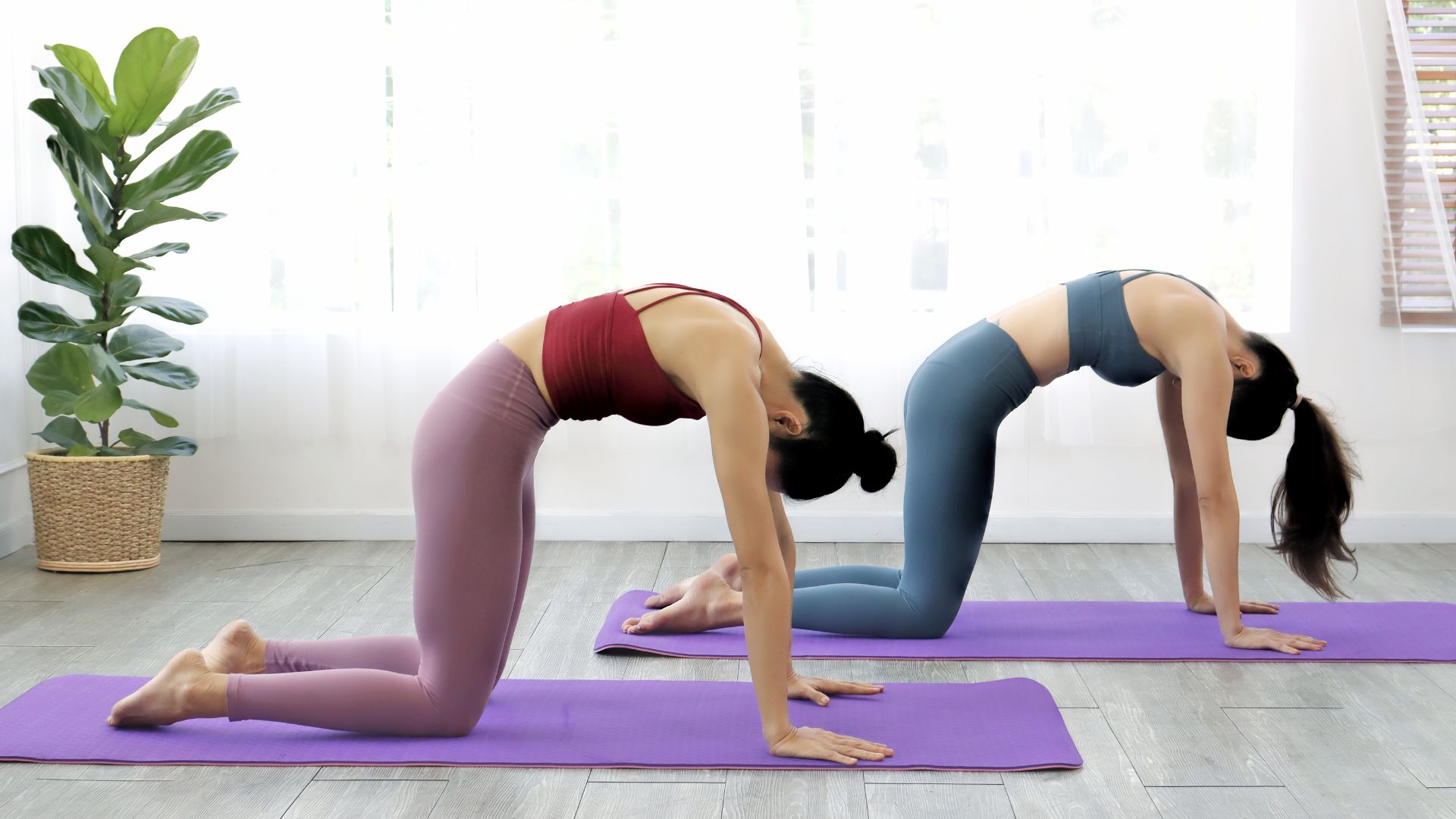
Though the traditional Sanskrit name for this pose is Marjaryasana, many people know it as the Cat Pose, named after the shape your spine takes, similar to that of a cat when it curls its spine up. It’s a great stretch for spinal flexibility and can help strengthen your core.
To do the pose, start on all fours. As you exhale, round your spine toward the sky as you drop your head and your tailbone toward the mat. Draw your lower belly in and up. It’s common to combine this pose with Cow Pose, inhaling after you’ve completed the Cat Pose and bringing your stomach down to the mat, arching your back and lifting your chin and neck.
Standing quad stretch
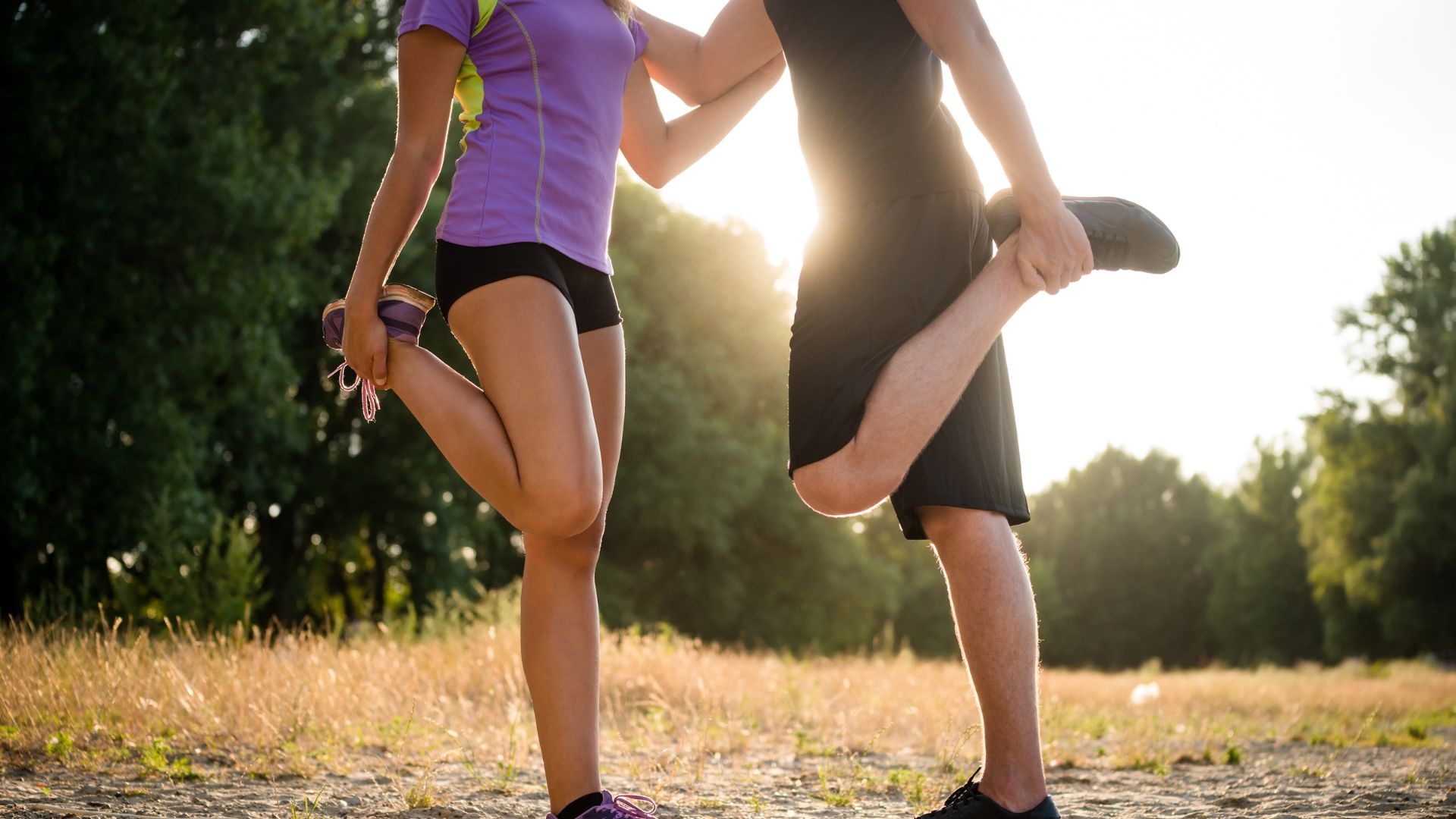
A classic stretch which you see many runners doing, this is a very simple move which helps target the quad muscles on the front of your thigh, above your knee and below your hip.
To do the stretch effectively, stand with your feet together. Bend one knee and grab your foot, pulling it towards your buttocks. Keep the knees together and squeeze your glutes to increase the stretch. Hold this for about 30 seconds before doing it again with the other leg.
Downward Facing Dog
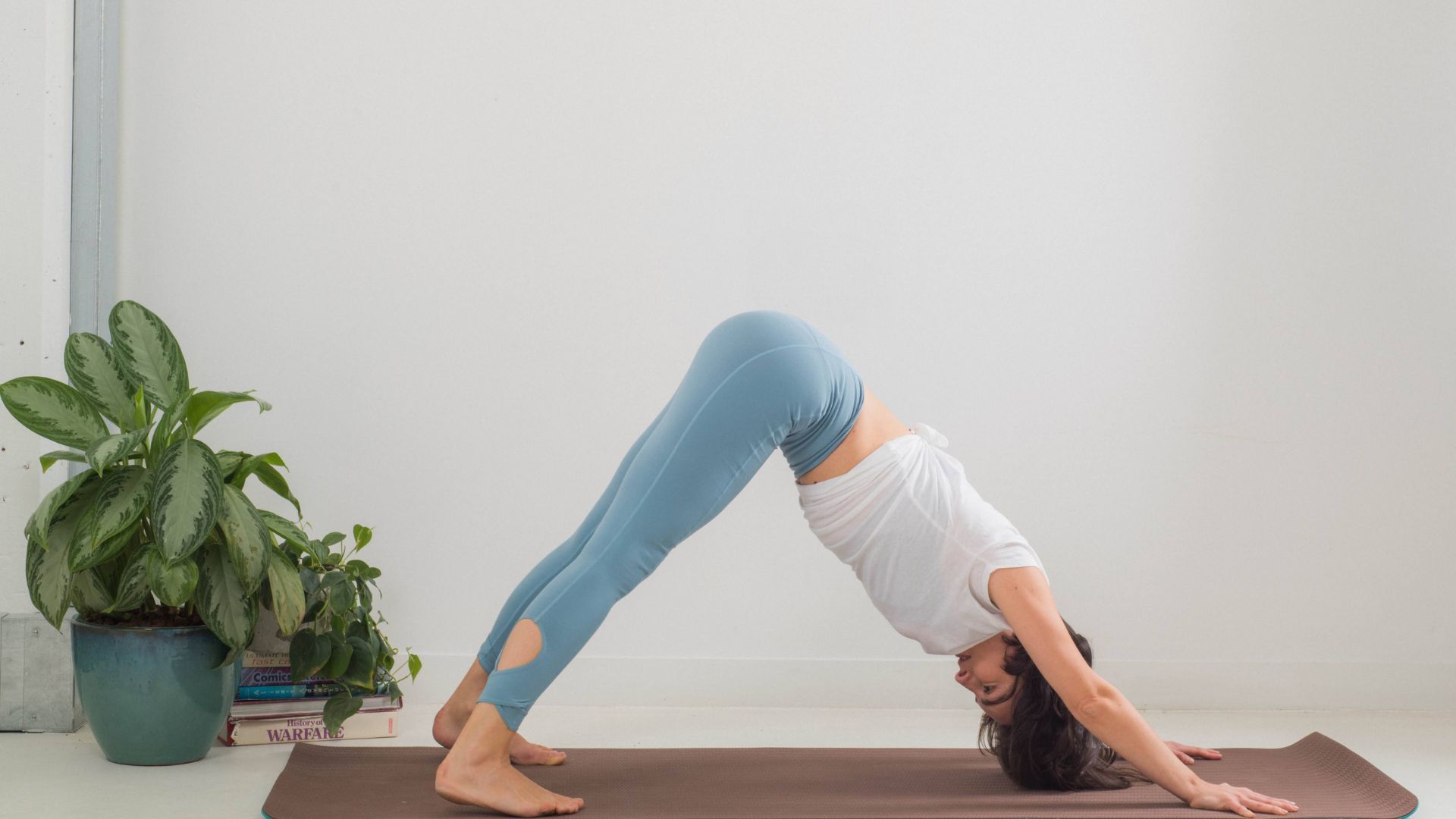
A classic yoga pose, this stretch helps strengthen the upper body, elongates the spine, improves circulation and stretches the hamstrings.
To perform this pose, start kneeling on all fours. As you inhale, straighten your legs and lift your hips to the ceiling so that your body is in an inverted V.
Relax your head down, looking back toward the belly button, and try to straighten your legs while pushing your heels toward the floor to really stretch out those hamstrings and calves.
Lunges
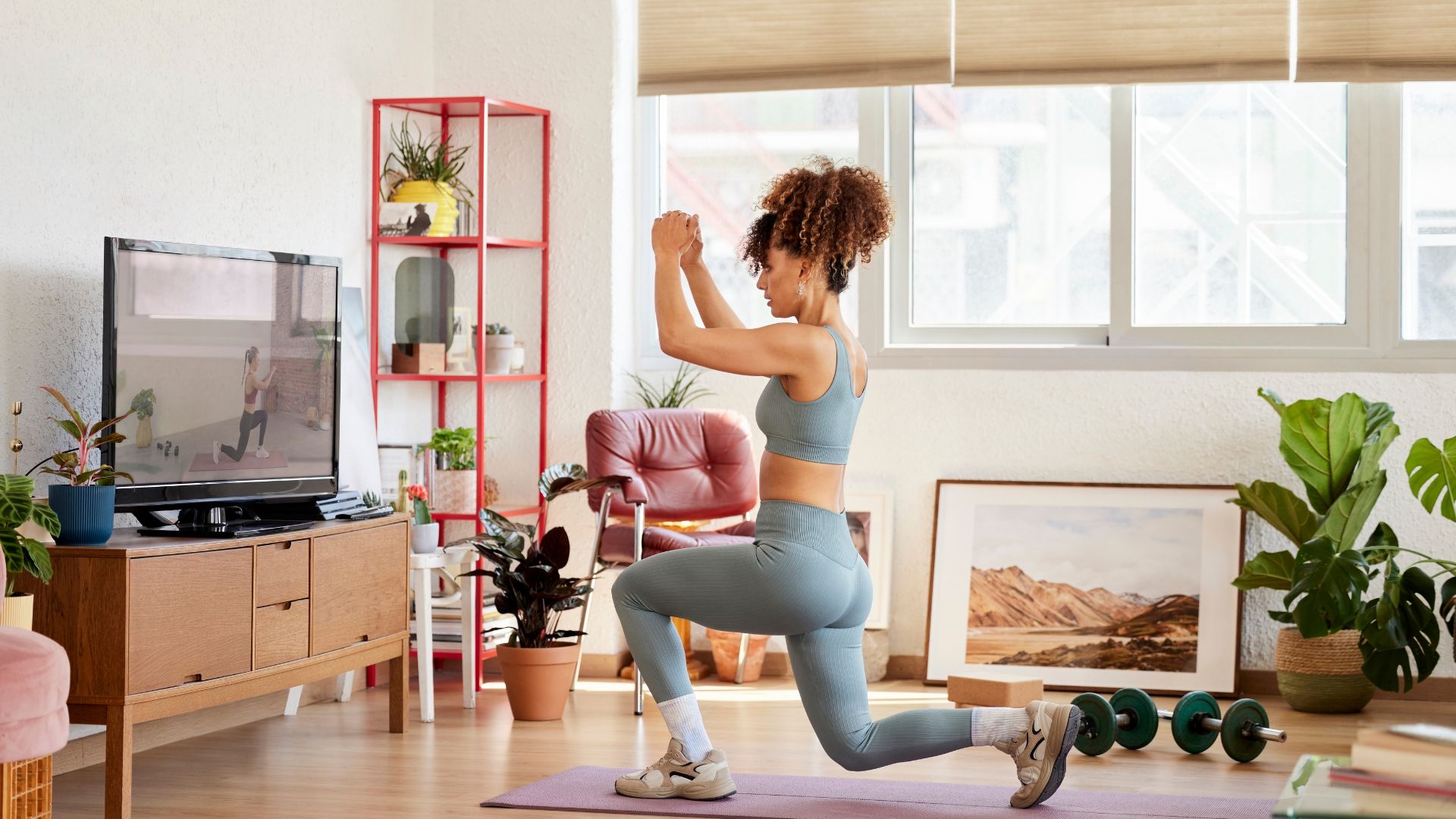
An exercise you can do anywhere with ample space, lunges are a great warm-up stretch before leg exercises and can be good resistance stretches that strengthen your back, hips, and legs, while improving mobility and stability.
Start in a standing position with your feet hip-width apart. Step forward with a long stride so one leg is ahead of your torso and the other is behind.
Your lunging foot should land flat and remain flat while it’s on the ground, but your rear heel should lift off the ground slightly. Bend both knees as you lower yourself, and as you get better, try to bend even lower each time.
Glute bridge stretch
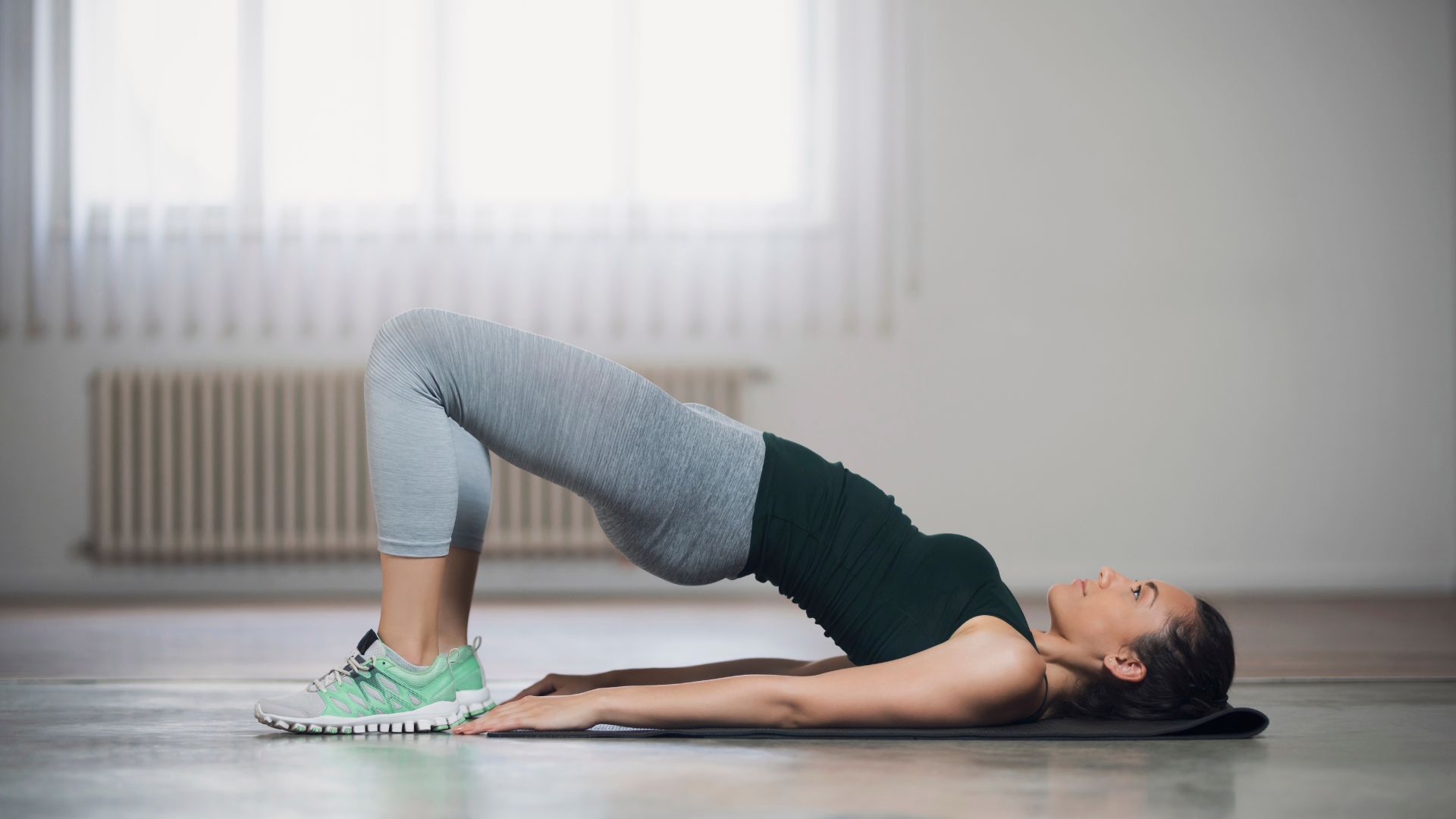
Strengthening the glutes and the pelvis, this is great for people who spend a lot of time sitting down.
Lay your arms on either side of you with your palms open. Slowly raise your hips, engage your glutes, and squeeze your abs. Be careful not to arch your back as you lift your hips.
Cobra Pose
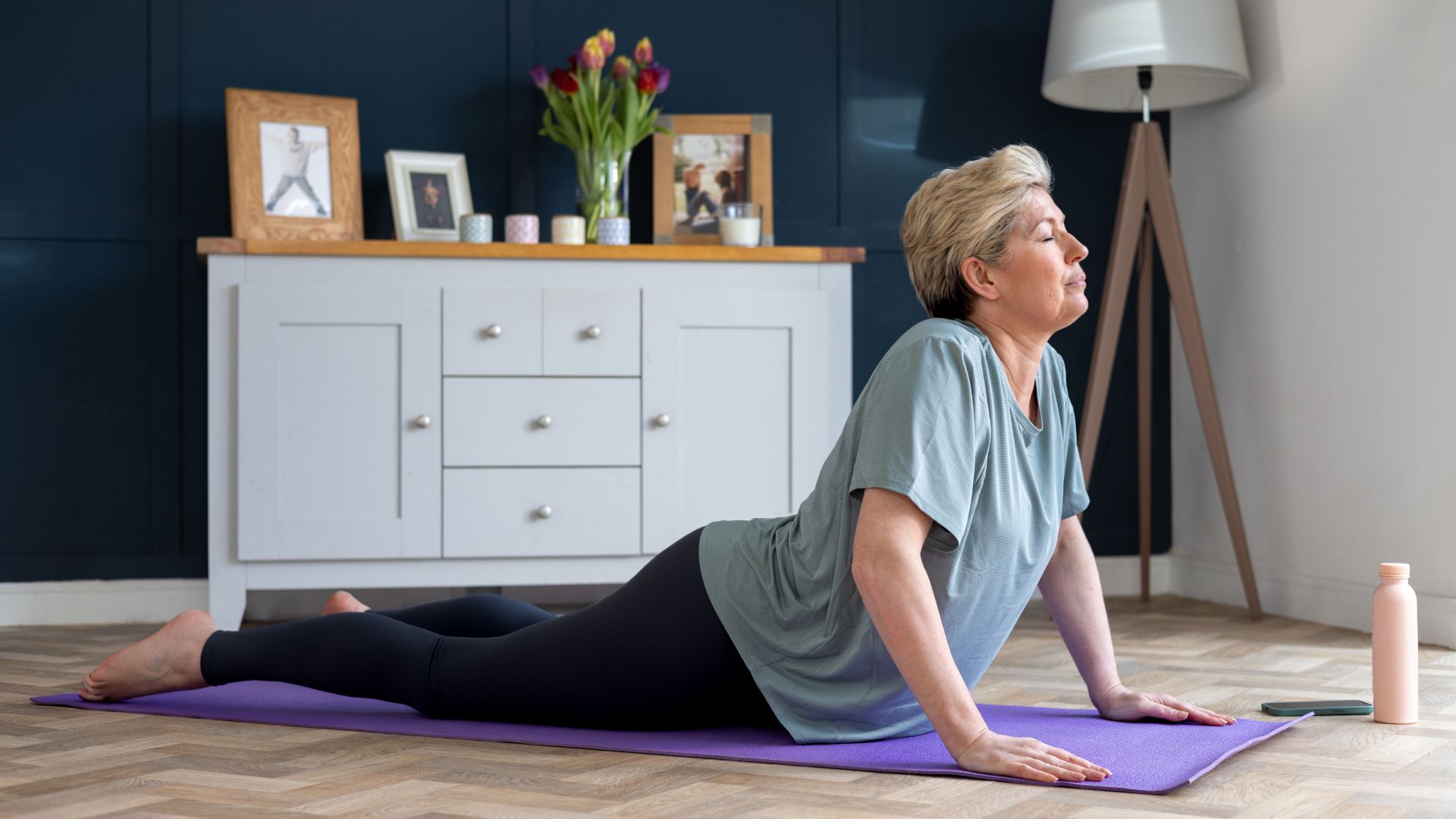
A stretch which elongates and strengthens the spine and fixes a hunched posture while also engaging your glute muscles (a muscle we use a lot for walking and running), the Cobra Pose is an essential stretch to master.
Called Bhujanagasana in Sanskrit, to do the pose, place your palms flat on the ground and bend your elbows back, bringing them closely into your sides. Anchor your pelvic bone to the floor.
Inhale and lift your chest off the floor. Roll your shoulders back and keep your lower rib cage on the mat. Your gaze should stay on the floor, don’t lift your neck up.
Gate pose
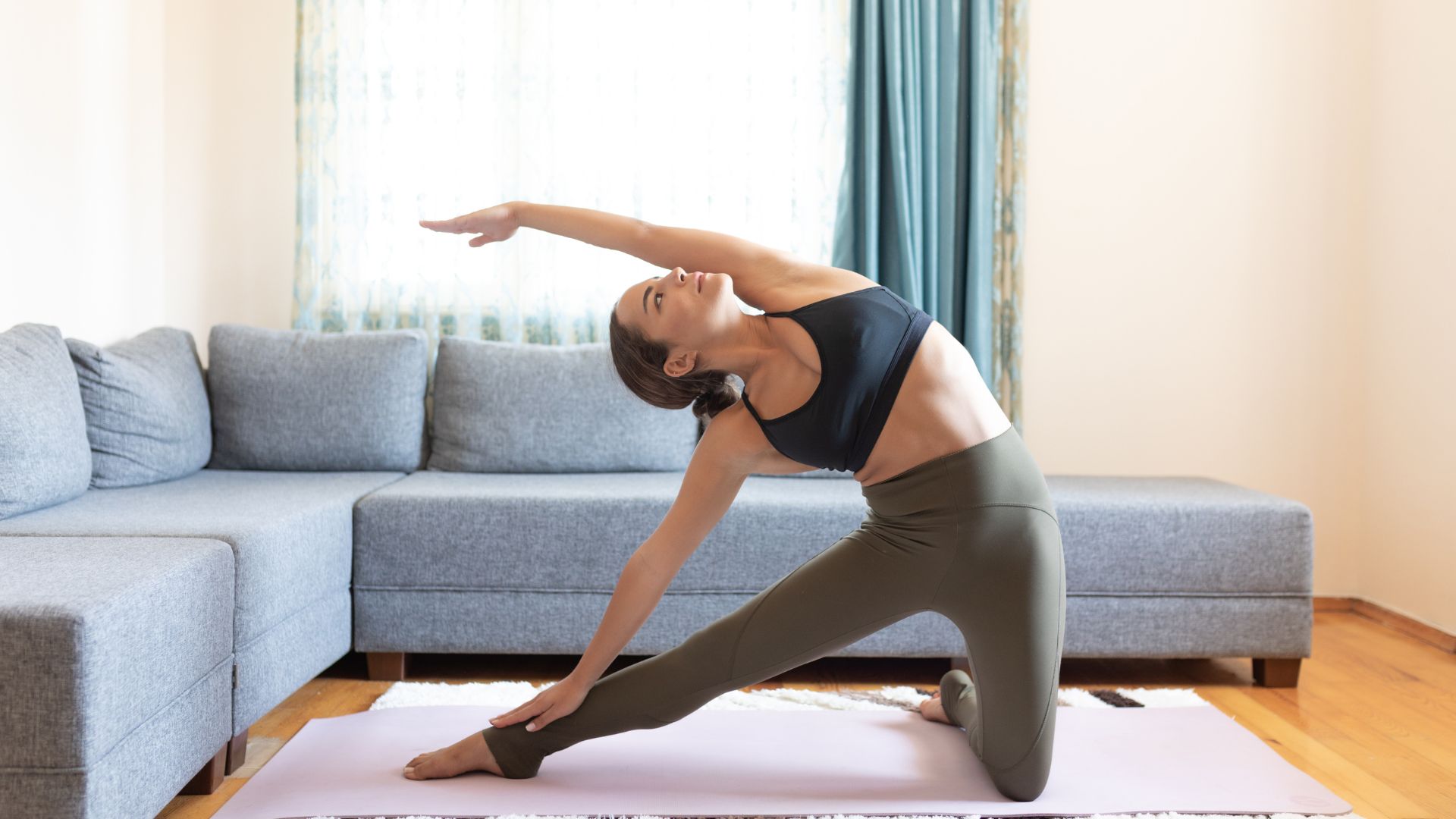
This side stretch improves posture and counteracts the effects of sitting for extended periods of time. Gate Pose also strengthens your side body, including the obliques as well as the intercostal muscles.
To do the pose properly, per Ekhart Yoga, start by kneeling down.
Then, "stretch your left leg out to the side and externally rotate the leg so that your heel is on the mat with your knee and toes pointing up. Press your right hip forward and open your arms out to the side parallel to the floor."
"Inhale, lengthen the side waists and exhale, lower the left side body to the left leg, placing the hand down on the leg. Ground through the right knee. As you inhale, lift your right arm up and over to the left, still pressing your right hip forward, knitting your ribs in and rotating your ribcage towards the ceiling. Look up, under the right arm or in front of you."
Head-to-knee bend
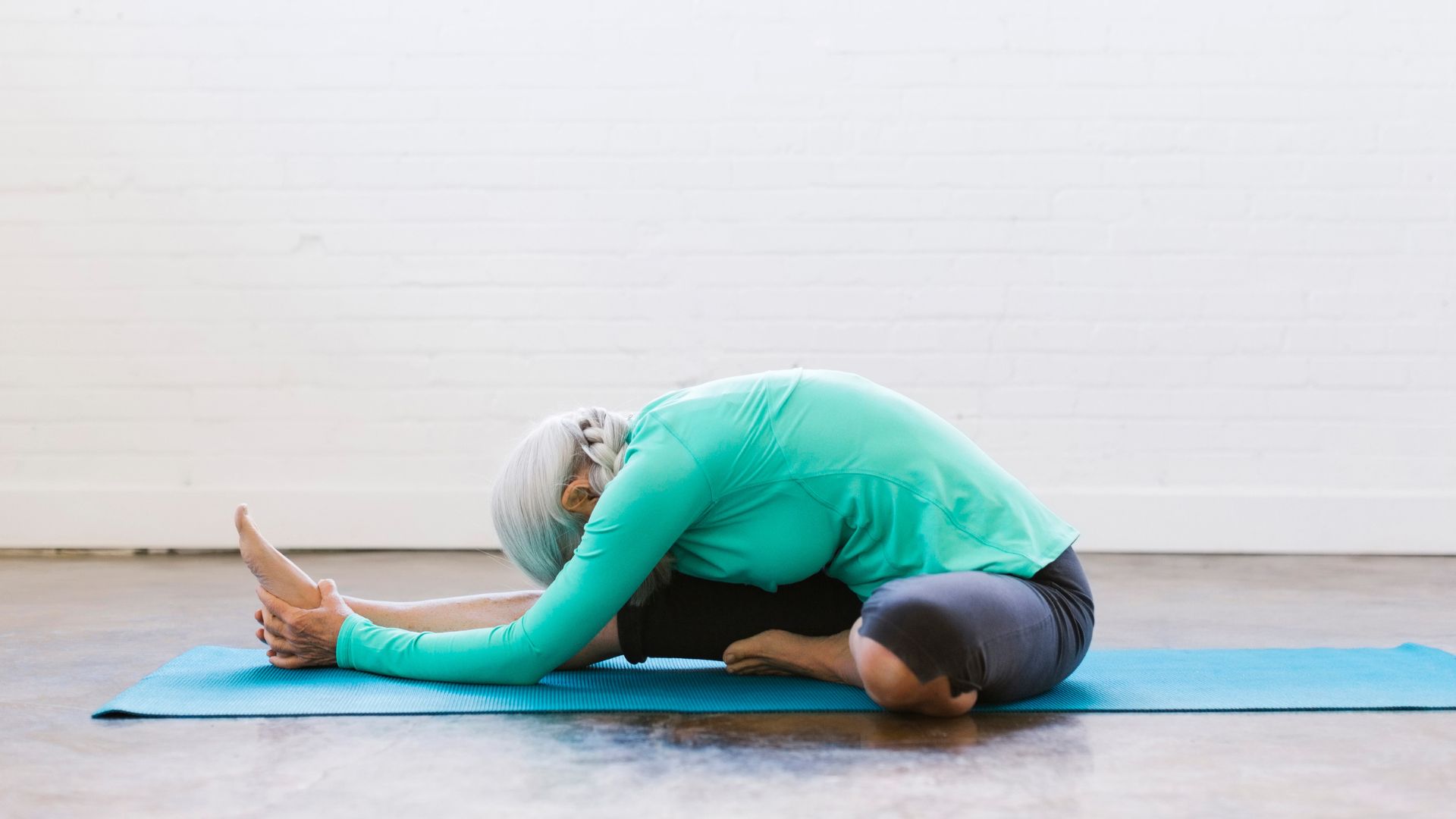
Known as Janu Sirsasana, this pose improves posture and counteracts the effects of sitting for too long. It stretches the back of your body, including your back muscles, and can help relieve lower back tightness and pain.
To do the pose, sit with one leg, tucking the foot near the knee crease of the other leg. This other leg must be straight, and stretch forward, hinging at the hips to reach for your foot.
Seated shoulder stretch
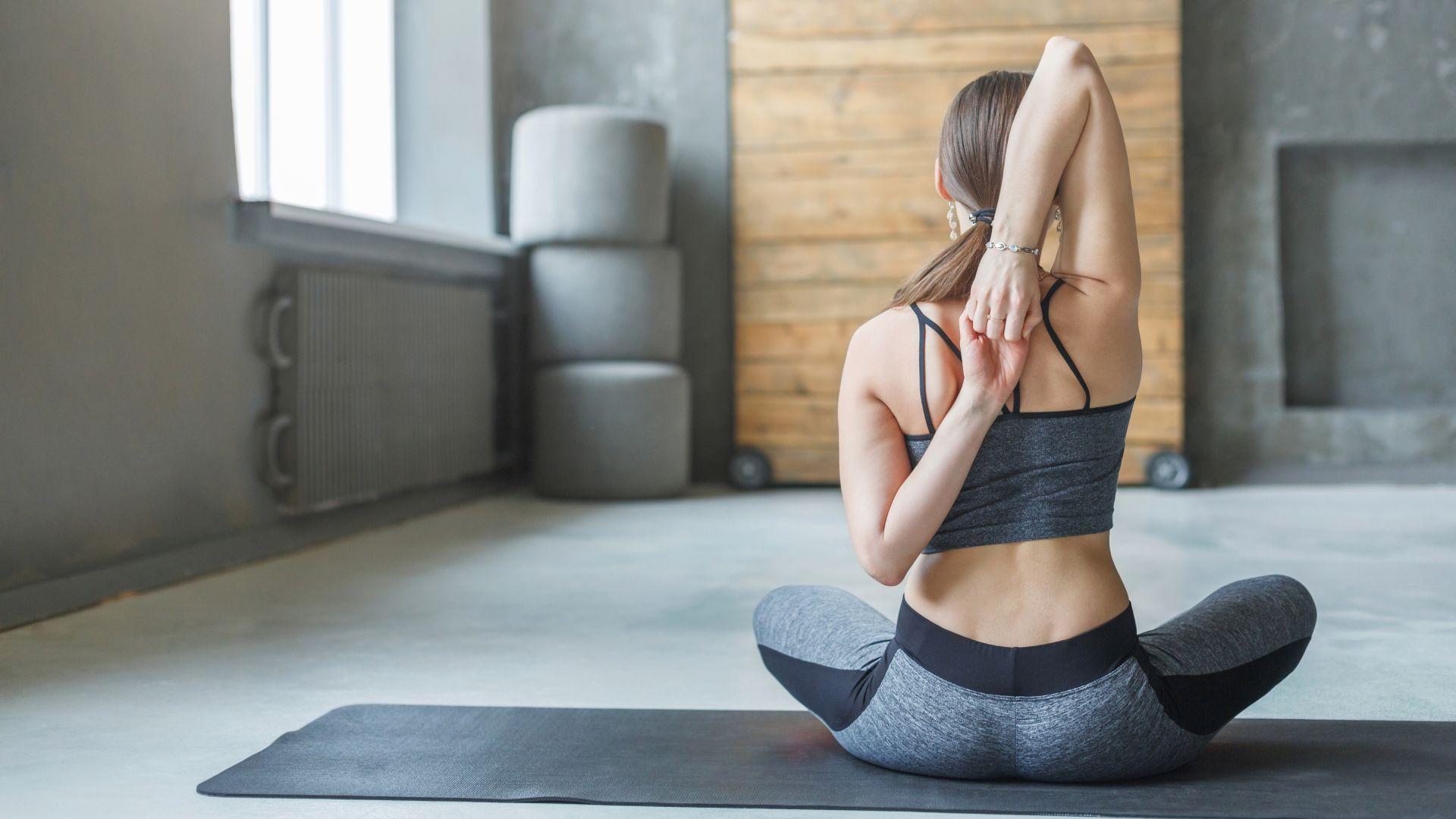
Sometimes you just need to do a classic, biiiiig stretch and feel that back crack.
To do a proper shoulder and back stretch, first, sit on the floor with your knees bent and feet flat. Clasp your hands behind your lower back. Straighten and extend your arms and squeeze your shoulder blades together. Do this for three seconds and then release.
The tree pose
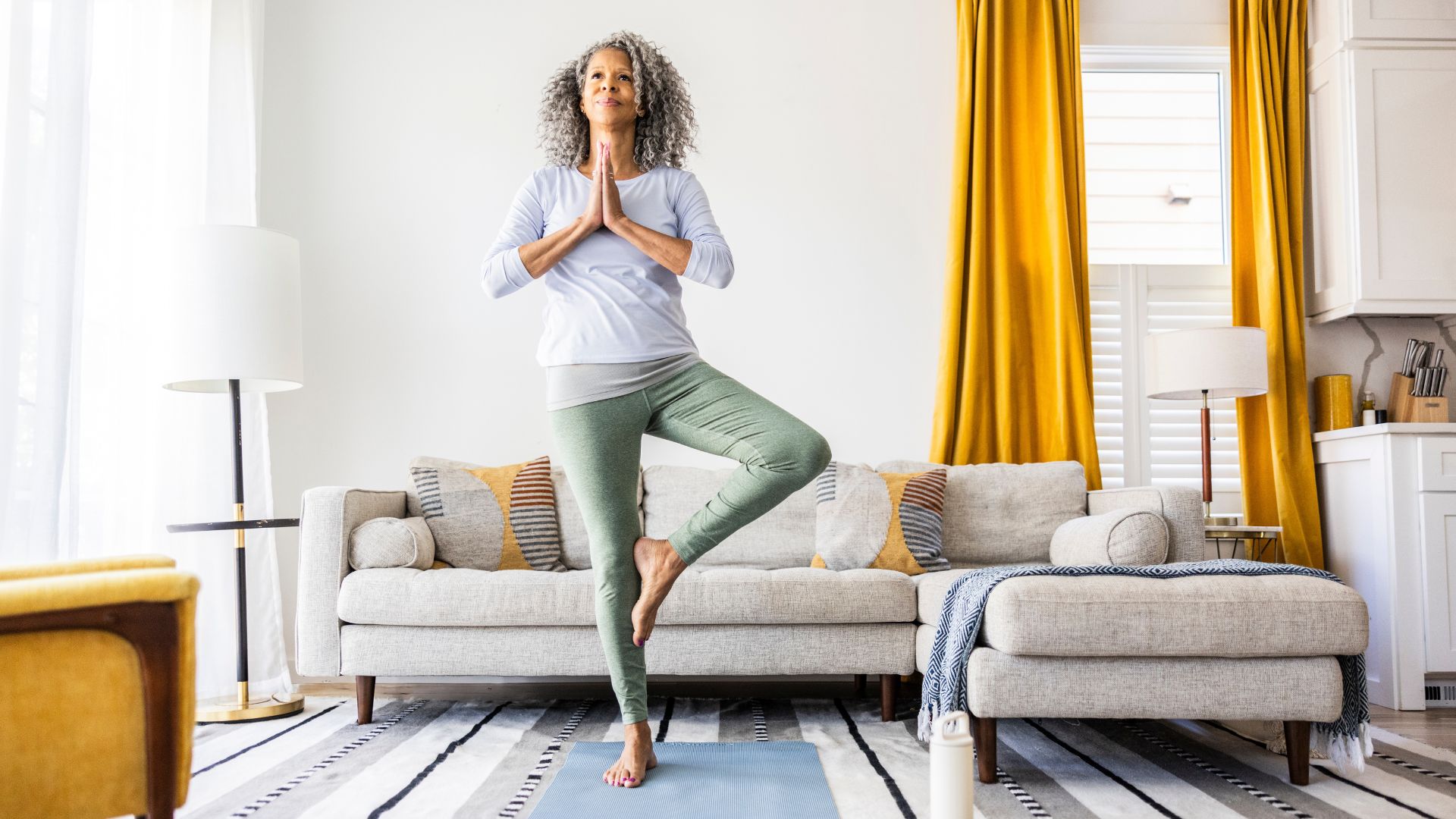
While it might look like it’ll be easier and not have much benefit on the body, Vrksasana (tree pose) engages many parts of the body to help strengthen and improve your posture.
On your standing leg, this pose strengthens your thigh, buttock (glute), and ankle. On your lifted leg, this pose gently stretches your entire thigh and buttocks.
Locust Pose
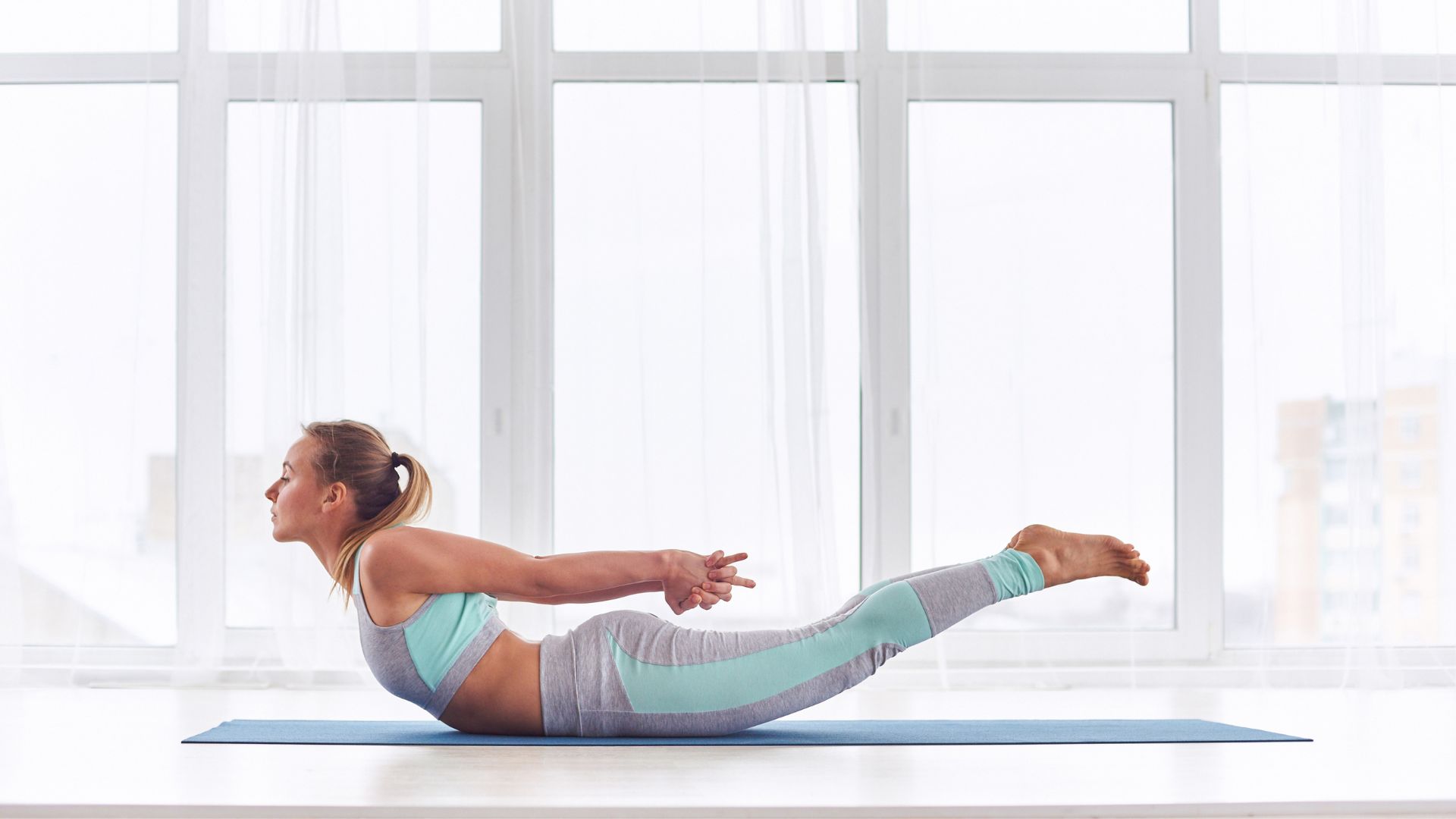
This pose, called Salabhasana in Sanskrit, involves lying on your stomach with your hands by your side and raising your head, shoulders, knees and toes off the mat. It keeps you flexible and mobile as it targets the thighs, shoulders, legs and calf muscles.
Legs-up-the-wall pose
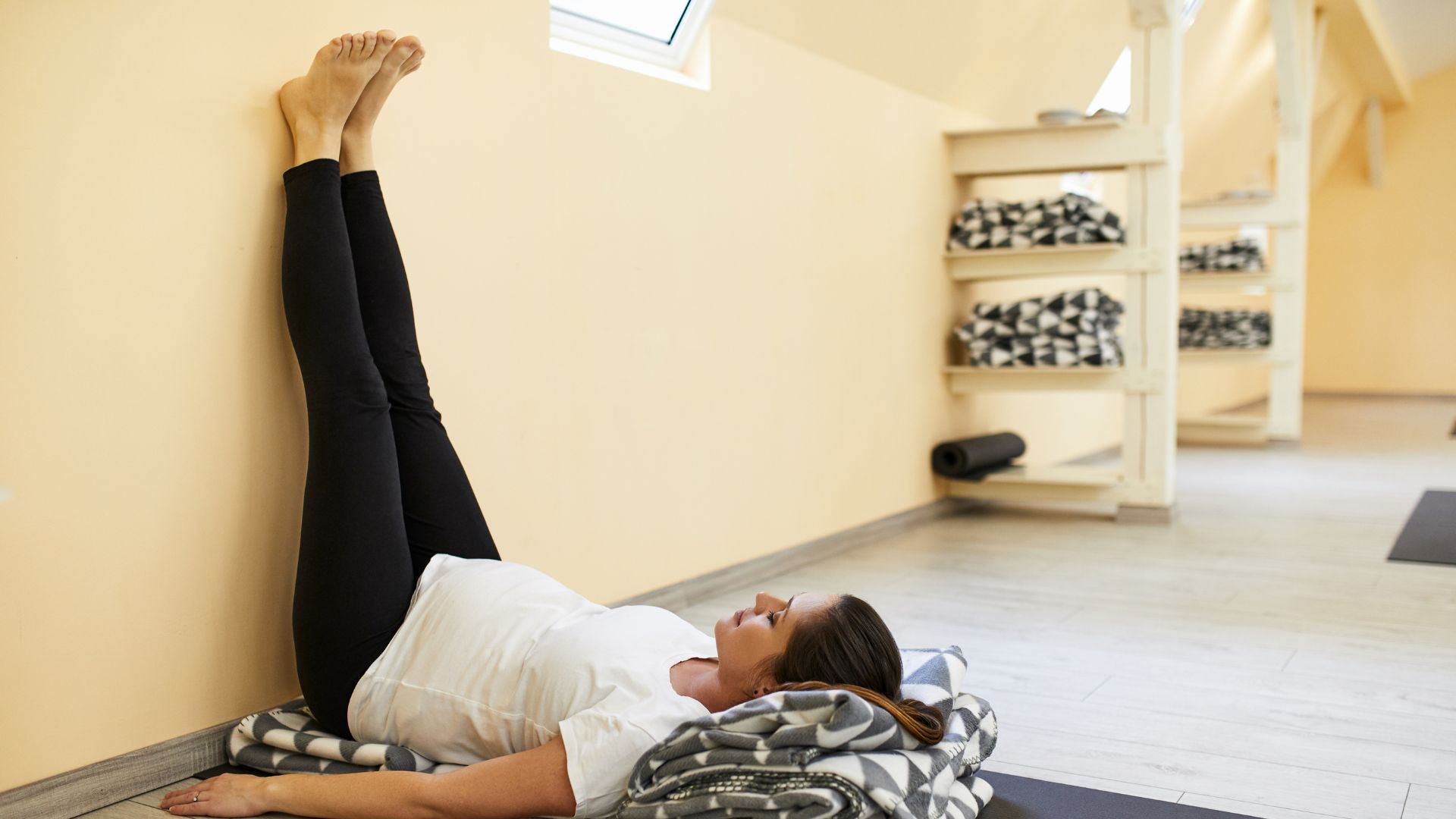
A great stretch that can also aid in recovery to get you back moving quicker, this pose (known to yogis as Viparita Karani) can reduce swelling and fatigue in the feet and ankles, gently stretches the lower back and can ease pains in the stomach.
Seated spinal twist
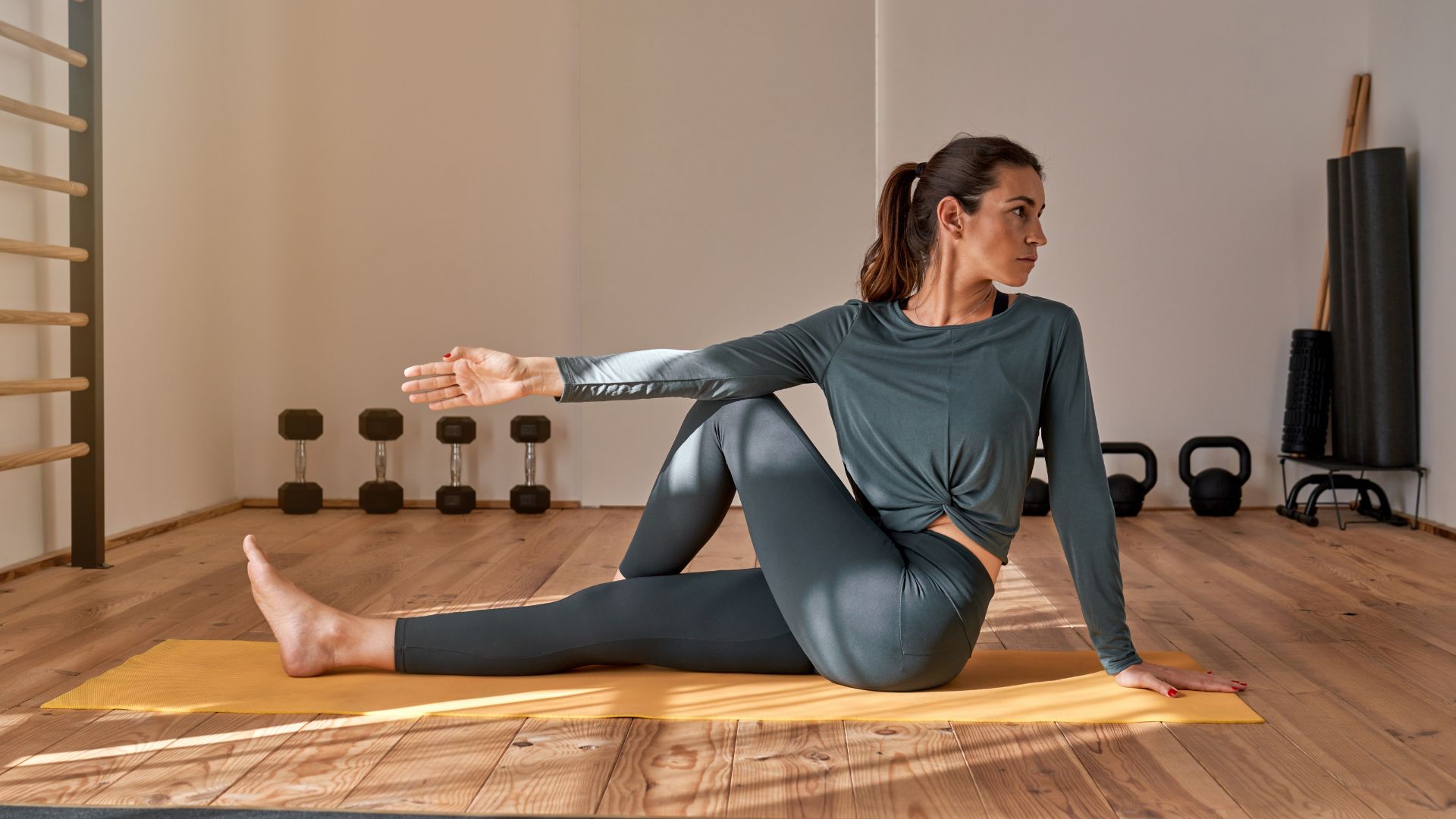
Loosening up your back will help rid any pains from sitting down, and it’ll also mean you can get deeper movement from other exercises.
To do this pose, start by sitting on the floor, with your legs straight. Place your hands on the floor behind you. Take your left foot and place it on the outside of your right knee. Inhale and bring your right arm up. Exhale and pull your right arm down.
Place your elbow on the outside of your left leg. Turn your chest, head and eyes to the left. Hold this pose for about a minute and then repeat on the other side.
The garland pose
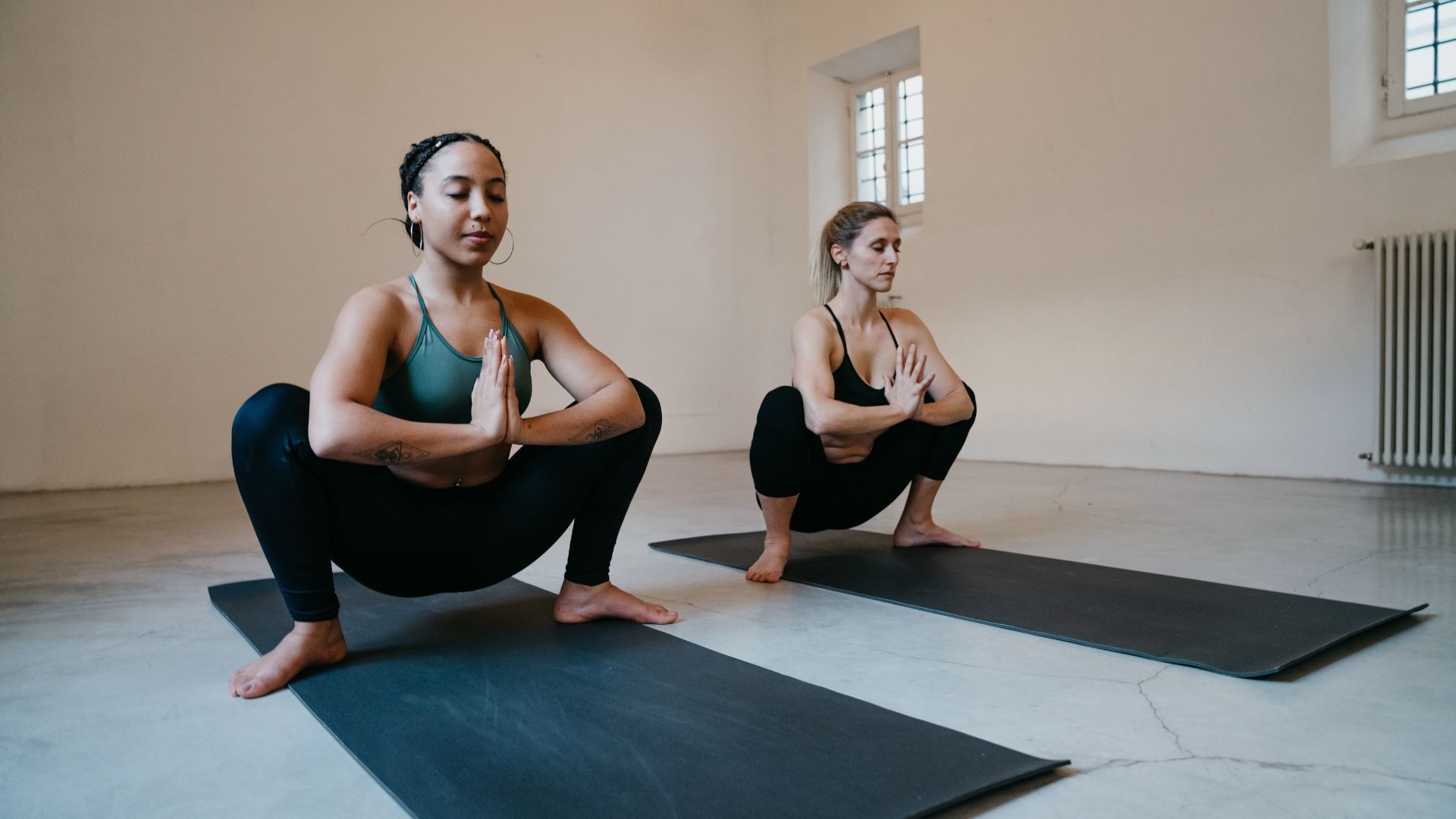
The Garland Pose, or Malasana, is like a deep squat which stretches your ankles, hips, and back. It can also stretch and tone the abdominal muscles.
To perform the pose, bring yourself into a deep squat with your elbows pressed against your inner knees and your spine straight.
Simple neck rolls
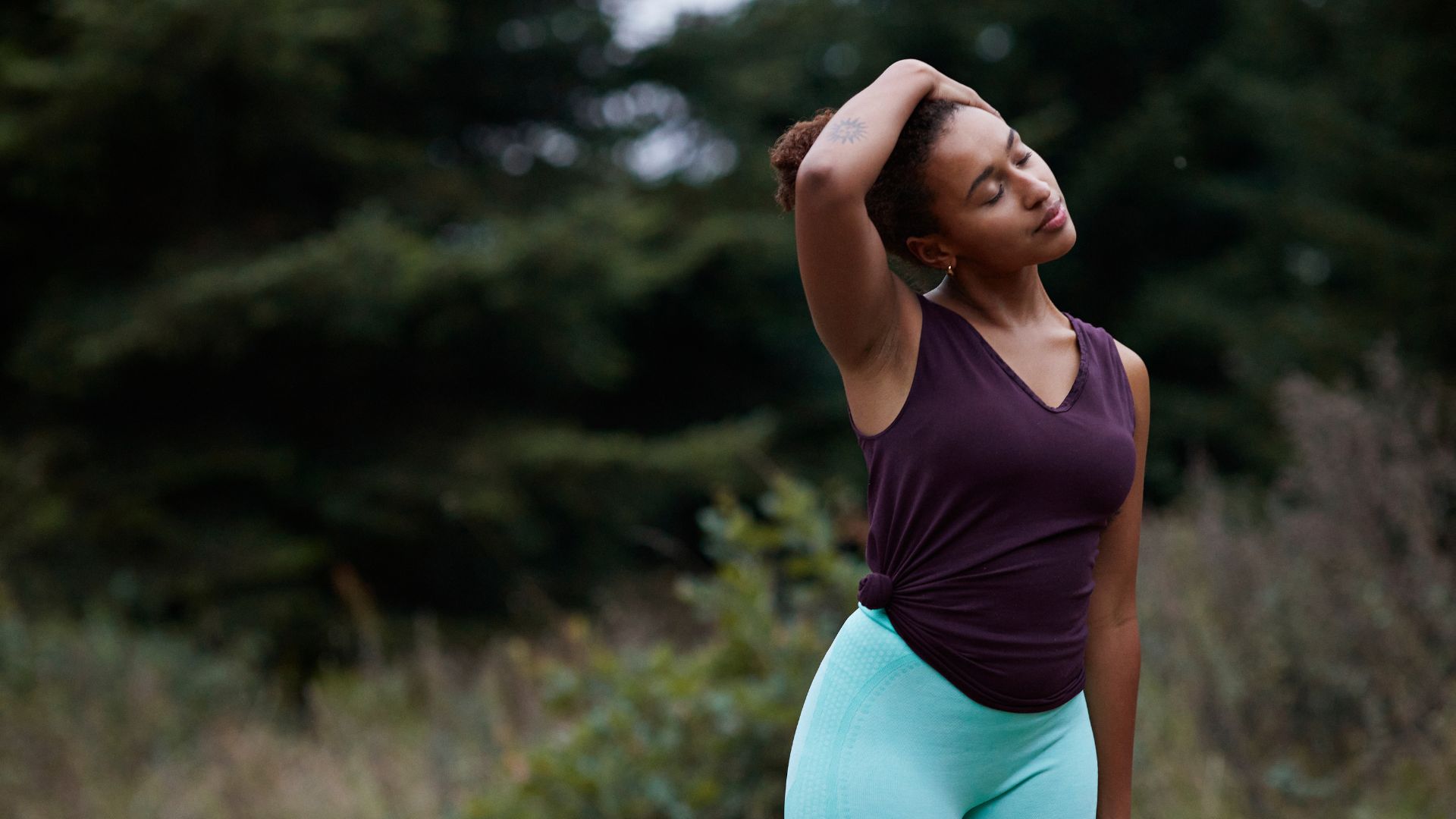
A stiff neck can be one of the most irritating - and repetitive - ailments that afflict us. From poor sleep, bad posture at the computer and carrying a lot of stress around the neck and jaw, some simple neck stretching can help.
Relax your shoulders and gently move your left ear towards your left shoulder, using your left hand on your head to help, gently. Never stretch further than feels comfortable.
Try to hold for 10 seconds and slowly repeat on the other side.
Straight or side leg raises
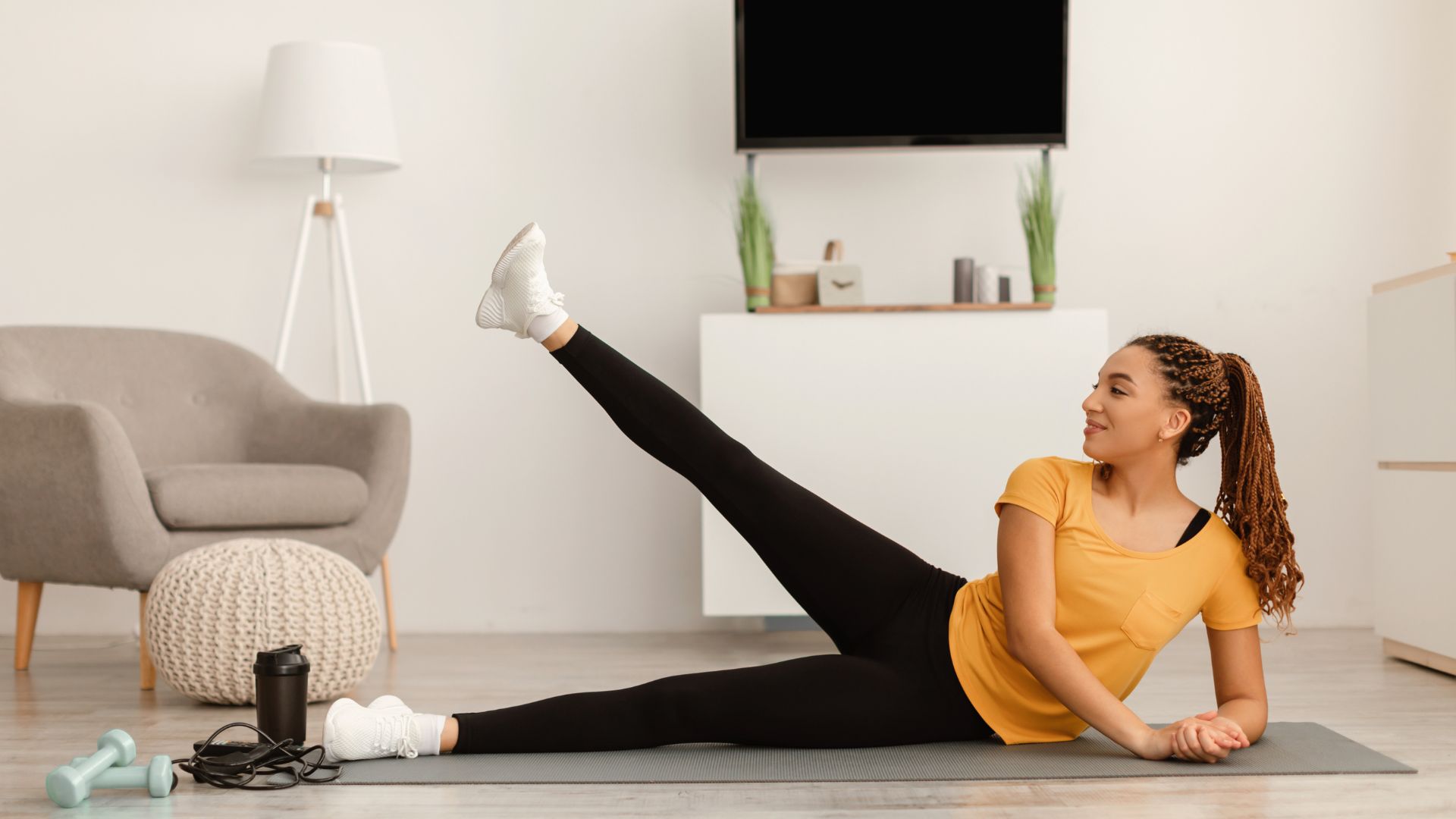
Performing straight or side leg raises can help make it easier and less painful to do many everyday activities, opening a greater range of motion, expanding the hips and helping with core strength.
For a straight leg raise, lie on your back with one leg bent. Lift the other leg – kept straight – up high and try to do so in a slow, controlled way. Do ten on each leg before switching.
For a side leg raise, lie on your side and, with your ankles together, lift one leg straight up, bringing it down slowly back to meet the other ankle.
Pigeon pose
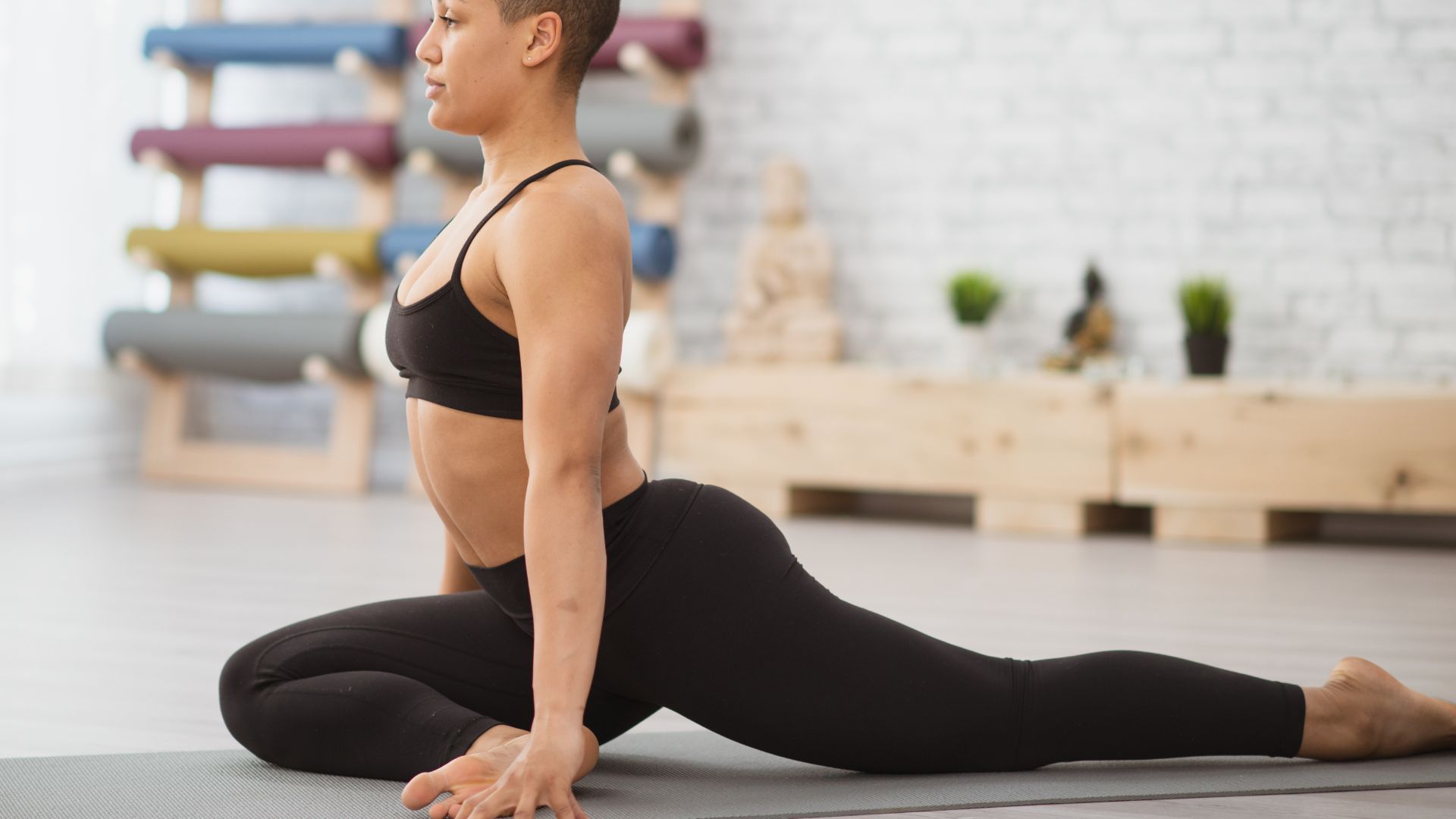
A trickier pose, but one that may strengthen the muscles that support the hips and lower back, this is a great stretch to try and master.
Stand straight and hinge at your hips, pulling your torso toward your legs. Keep your spine straight as you fold forward. Inhale and lunge with your right leg forward, keeping your left leg straight behind you.
Lower your right knee, and put the exterior side of your right shin on the mat. Your right heel should now be near your left hip. Place your left knee on the mat and put your palms in front of you. Finally, try to draw out and lengthen your spine as you lift your chest.
Tiger pose
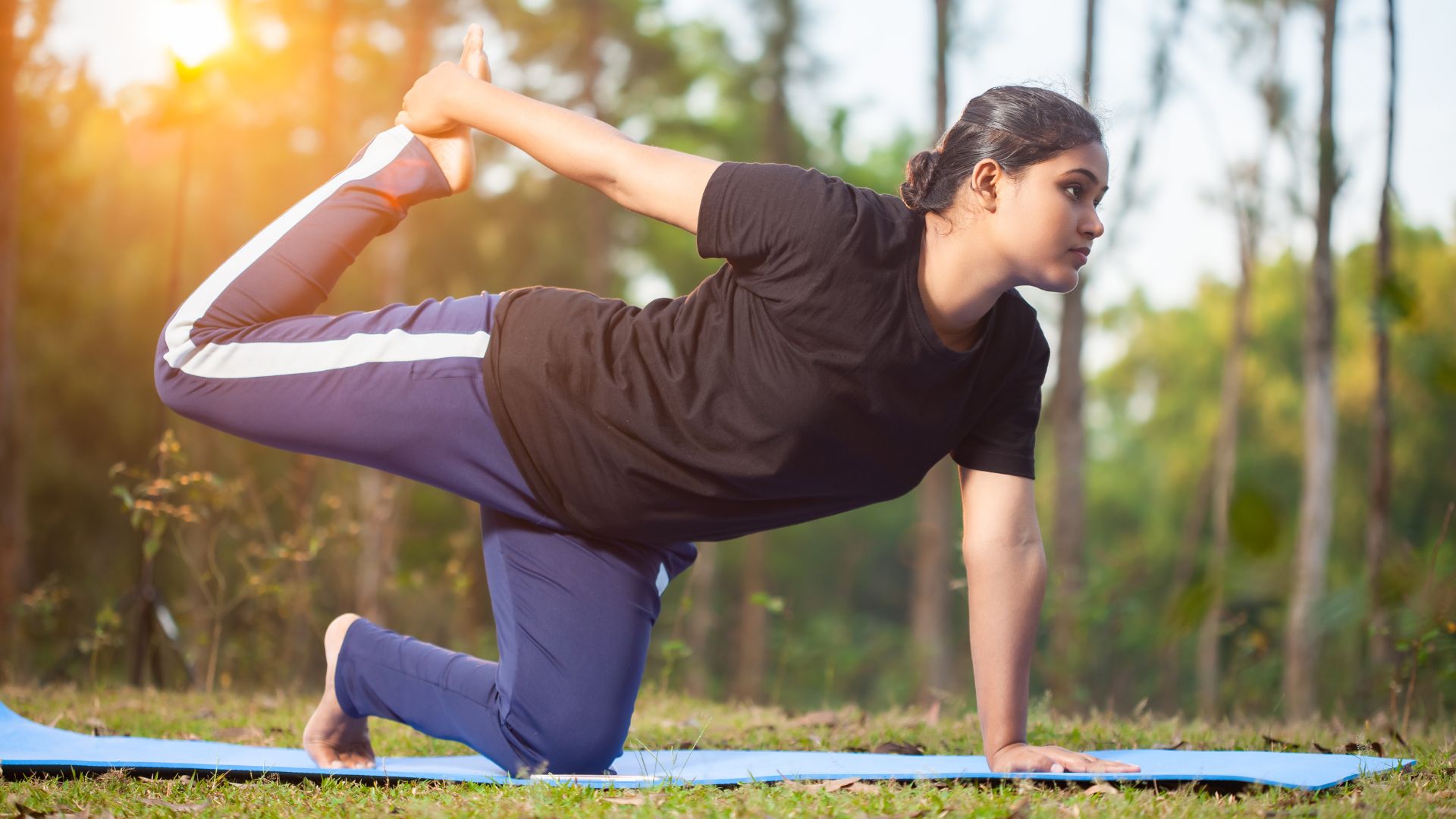
Referred to in yogi circles as Vyaghrasana, this is a decent beginner stretch which targets the abs and the spine, as well as engaging your glutes, hip flexors, knees, lower back, shoulders and wrists.
To do it, start on all fours and reach one foot towards the sky. Arch your spine and look upwards. With an exhale, bring that leg back towards your face.
Forward Fold
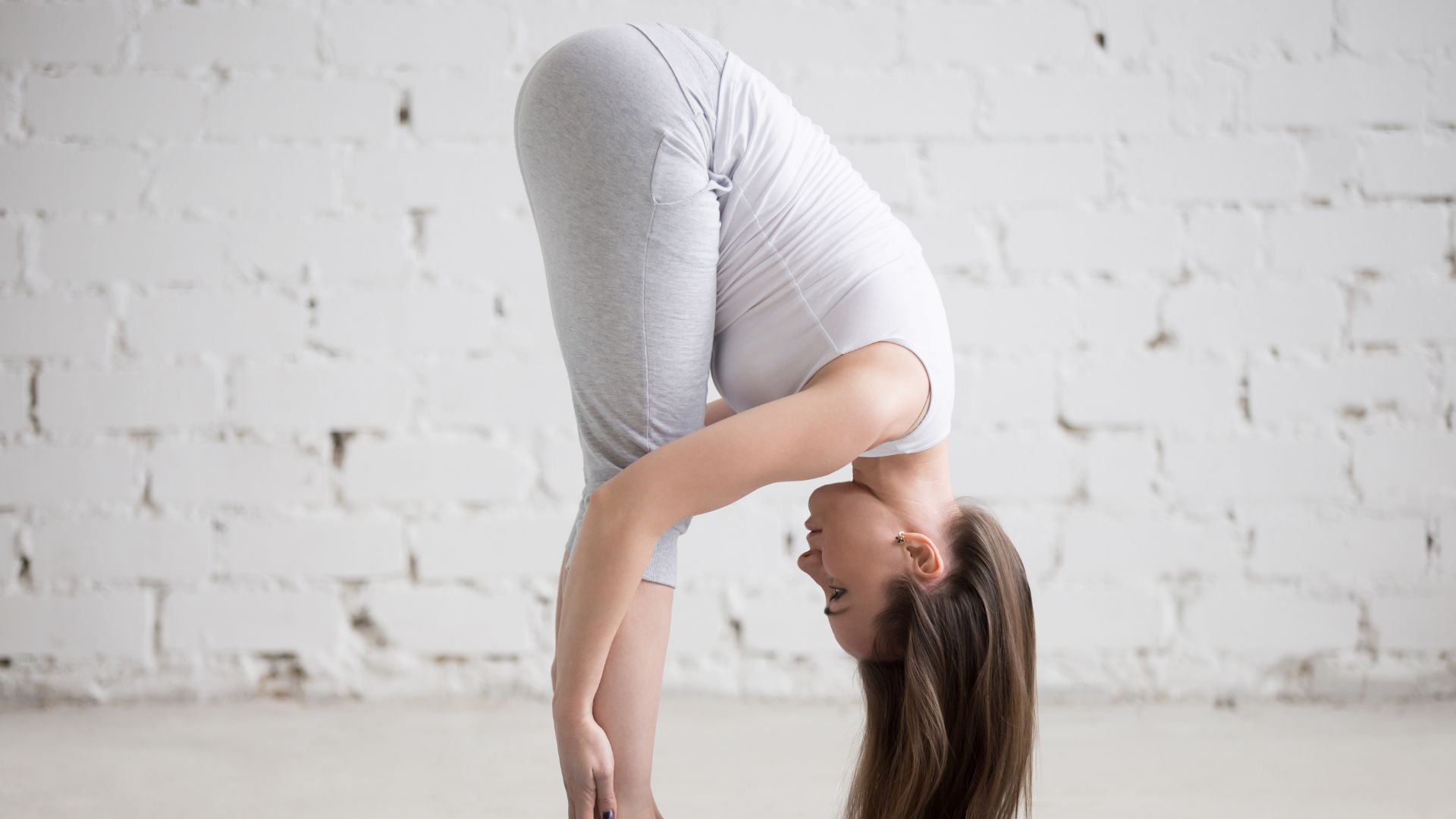
A deep stretch that will focus on hamstrings, hips and calves while also offering a release on your upper back, this is a stretch that you’ll find easier the more you try it. To do it, from a standing position with knees bent slightly, breathe out and fold forward from the hips.
Bring your head towards the floor and tuck your chin under, relaxing your shoulders. Keep your knees straight but with a gentle bend so that they are not locked out. Hold for at least 30 seconds.
Standing crescent
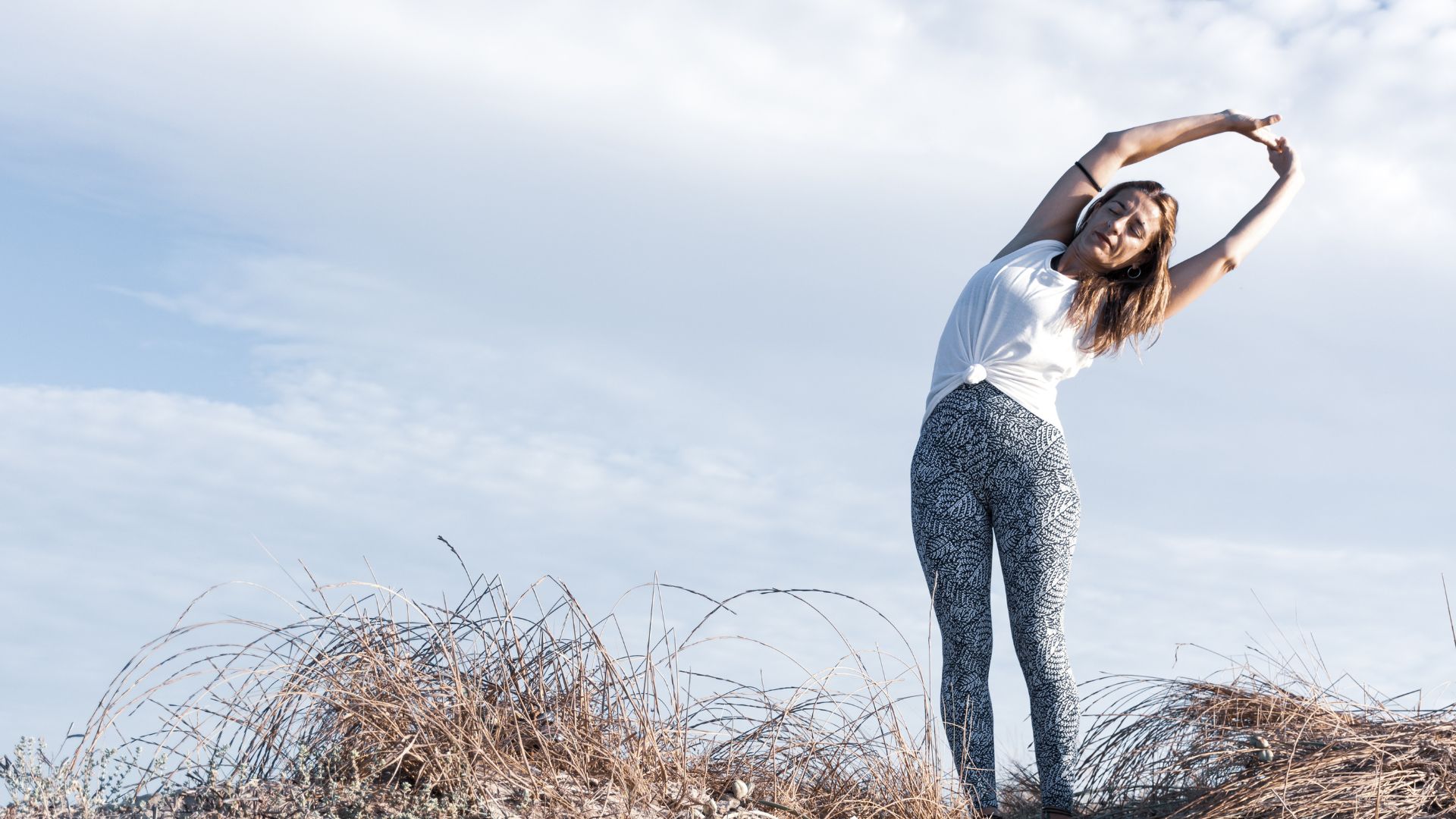
A perfect stretch for those prone to sore necks, this pose also helps support balance and aims to improve circulation. Standing straight, reach your arms overhead and interlock your fingers above your head.
On an exhale, bend to one side, creating a crescent shape with the body. For a deeper stretch, turn your chest and look up to the sky.
Knee-to-chest
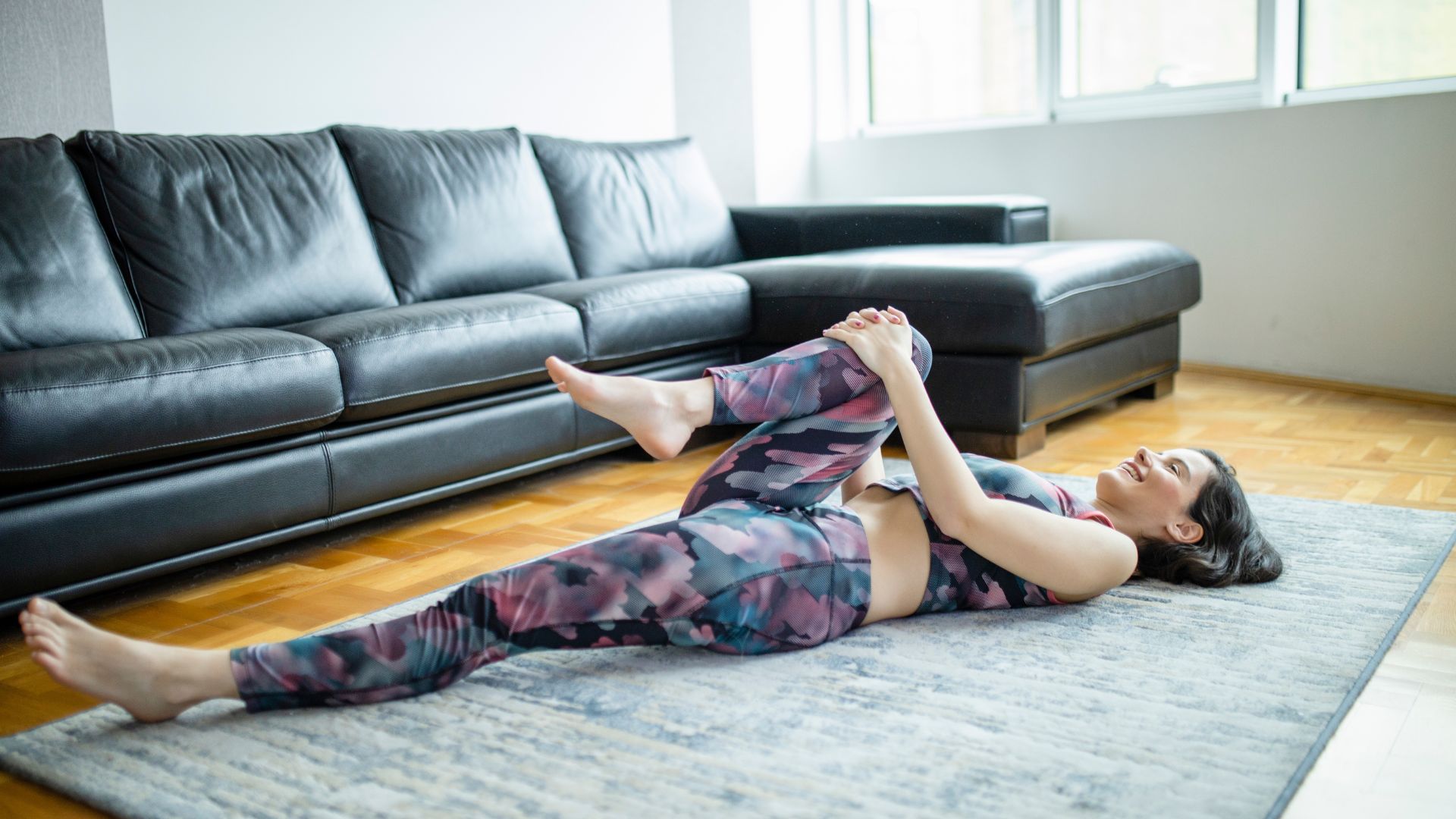
This stretch will open your lower back and help the hard-to-target mid-back. Lie on your back with both legs extended. Pull your right knee into your chest, while keeping the left leg straight and your lower back pressed into the floor. Hold for at least 30 seconds. Repeat on the other leg.
Camel pose
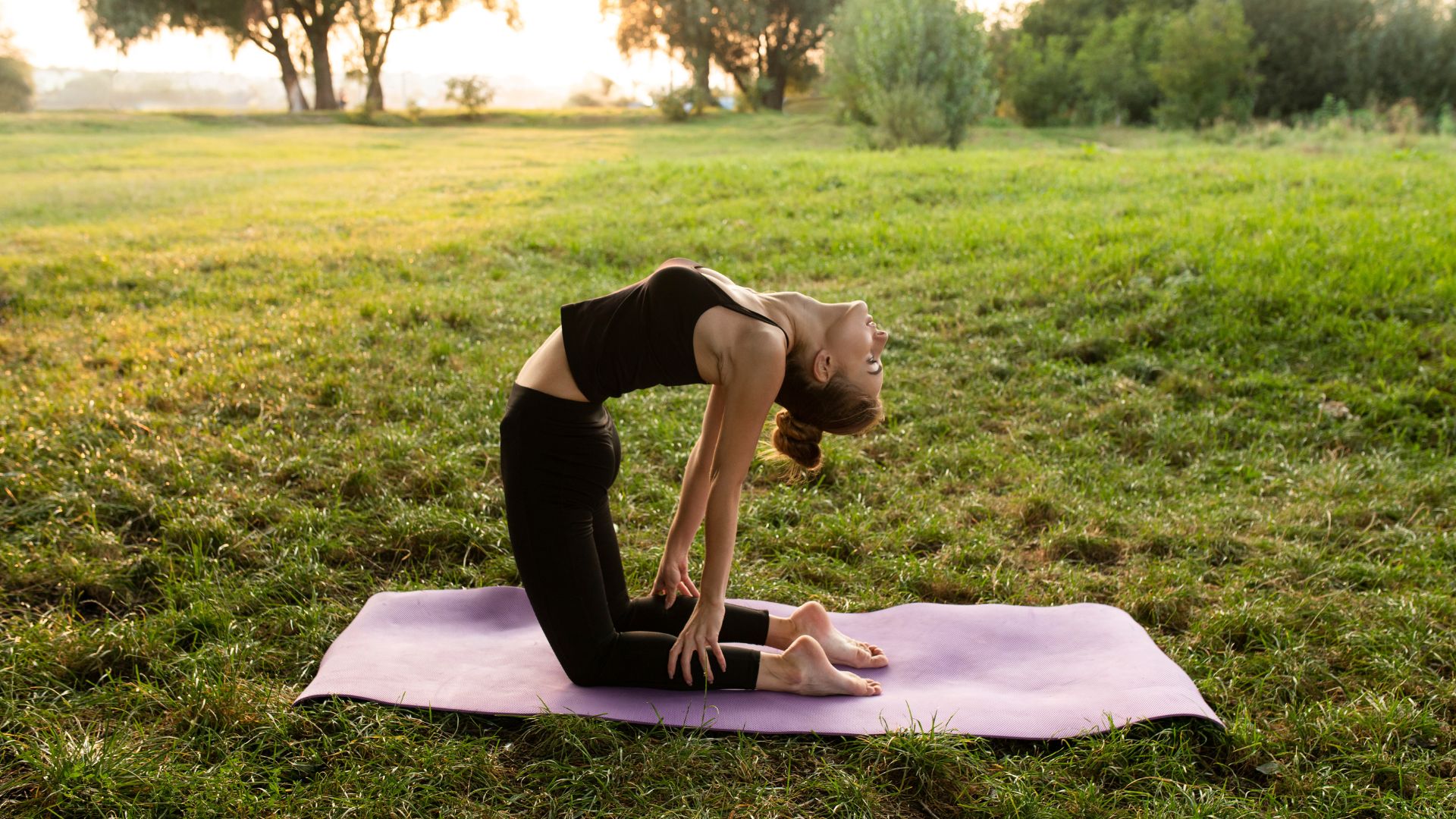
Known as Ustrasana, this stretch is a pose that helps open up your chest and back. It is good for preventing slouching and relieving stiffness in your lower back. It’s not the easiest for beginners, but it has a number of benefits for those wanting to stay mobile, flexible and strong.
Per Peloton, the best way to carry out the stretch involves starting in a kneeling position with your knees under your hips and your toes untucked, keeping your feet pointed.
Then, “Pull your belly button in, tucking your tailbone slightly so your pelvis is in a neutral position. Bring your hands to your waist and pull your elbows back toward one another. Keep your shoulder blades knitted together."
"Start to lift your breastbone toward the ceiling to begin your backbend. Keep space in your low back. Feel your upper back work to create a lift in your chest. Pause here. Release your neck back in line with the spine if it feels comfortable. Stop here or take your hands to your heels and continue back bending. To modify, take your fingertips or hands to the blocks. Press into your shins to come up and out of the backbend, restacking your spine."
Frog stretch
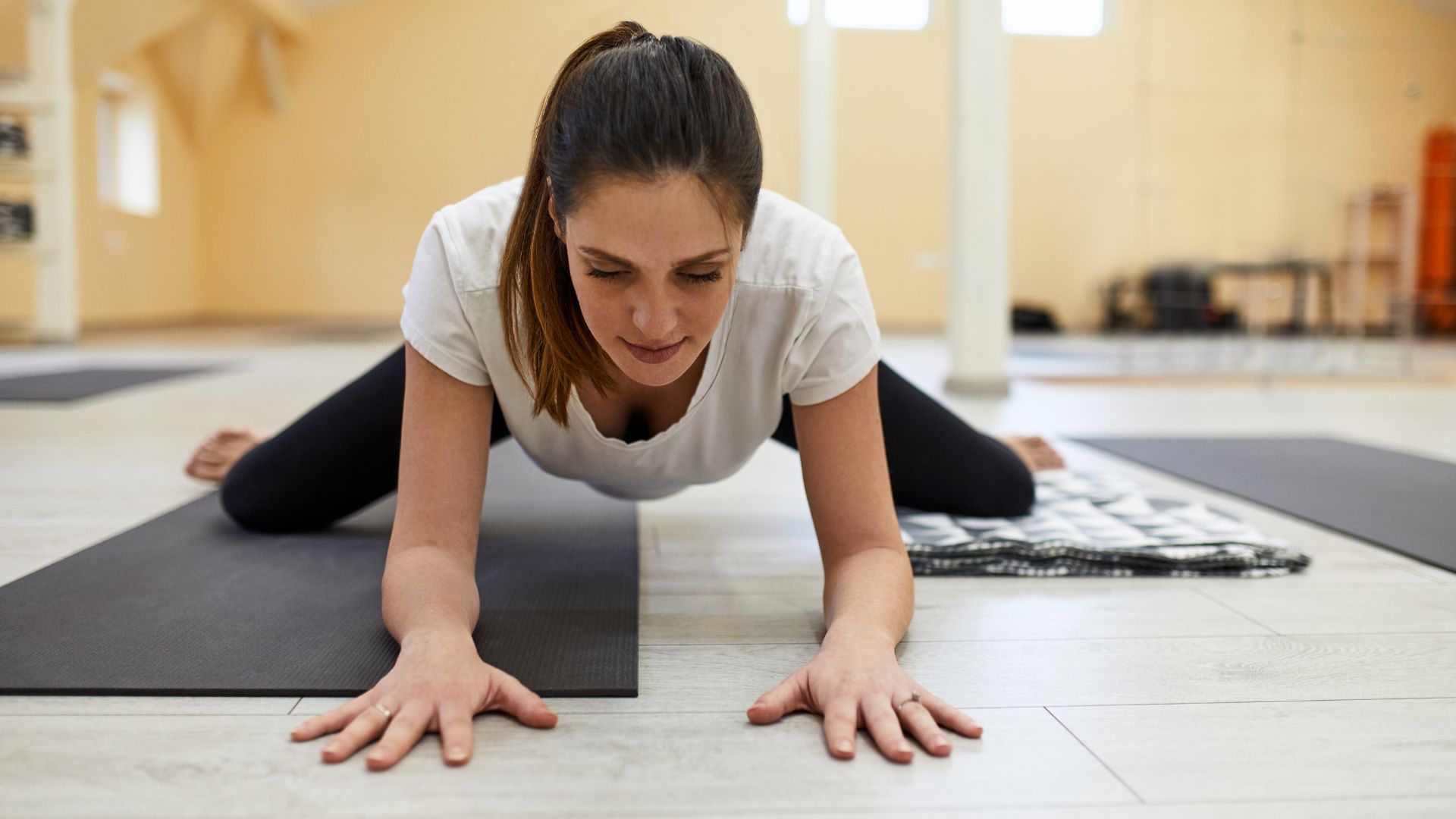
A deep stretch, the frog pose helps stretch and open your shoulders, lower back, hips, groin and inner thighs. To do it, start on all fours. Yield your weight forward onto your hands. Slowly, move your knees out to the sides, keeping them in line with your hips.
Turn your toes out to the sides. Rest on your forearms with your elbows beneath your shoulders. Sit back into your hips to deepen the pose. Hold for up to one minute.
Chair pose
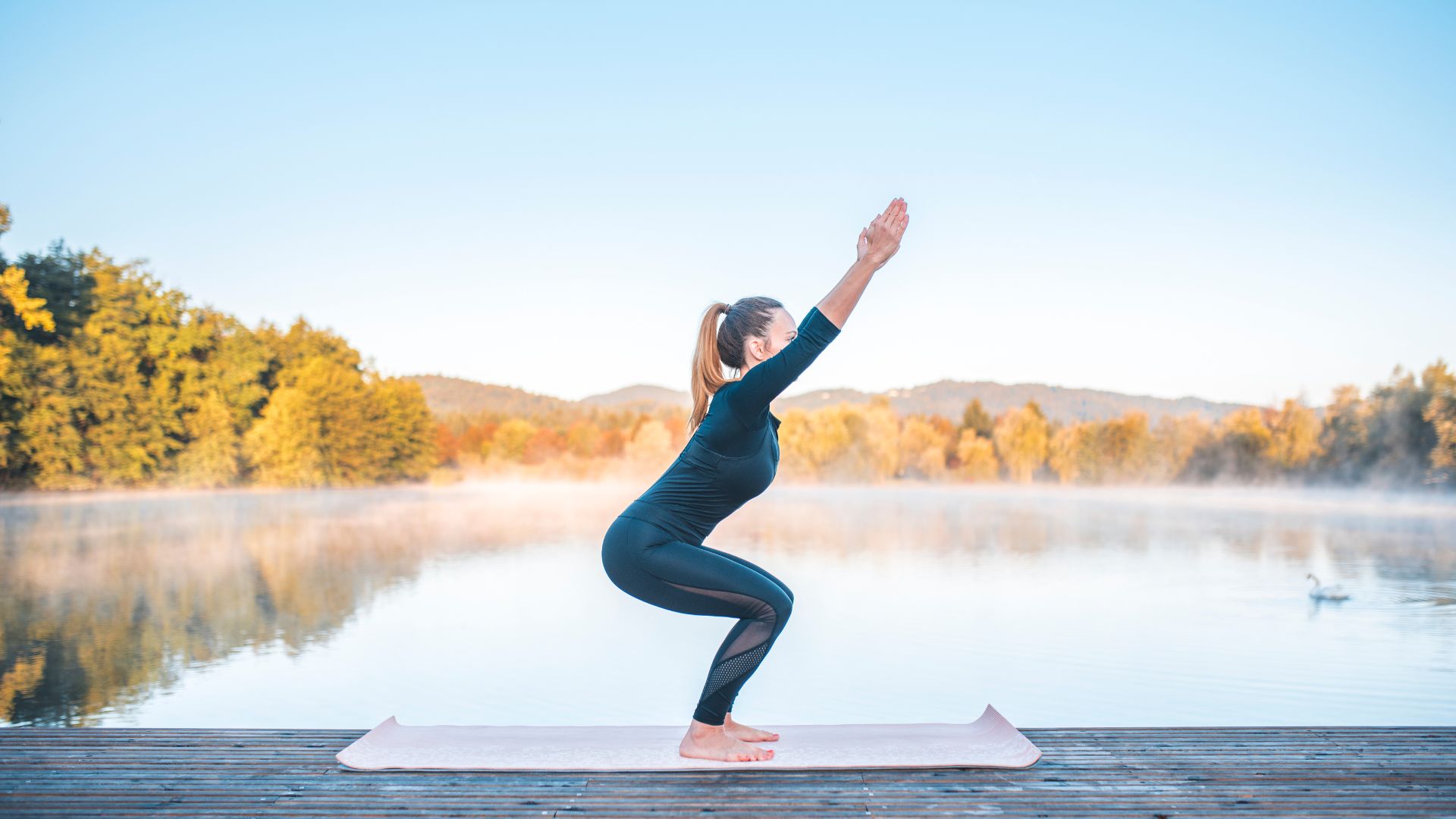
Known as Utkatasana, this is a great stretch to try and carry out regularly, as it engages your legs, upper back, lower back, shoulders, hamstrings, hips, glutes, and feet all in one.
Standing straight, inhale and lift your arms up straight, stretching your fingers out long and keeping your shoulders down. Then, exhale as you bend your knees, keeping your thighs and knees parallel.
Lean your body forward to create a right angle with the tops of your thighs. Keep your neck and head in line with your torso and arms. Aim to hold the pose for up to one minute each time, and do reps of up to 10.
Happy Baby
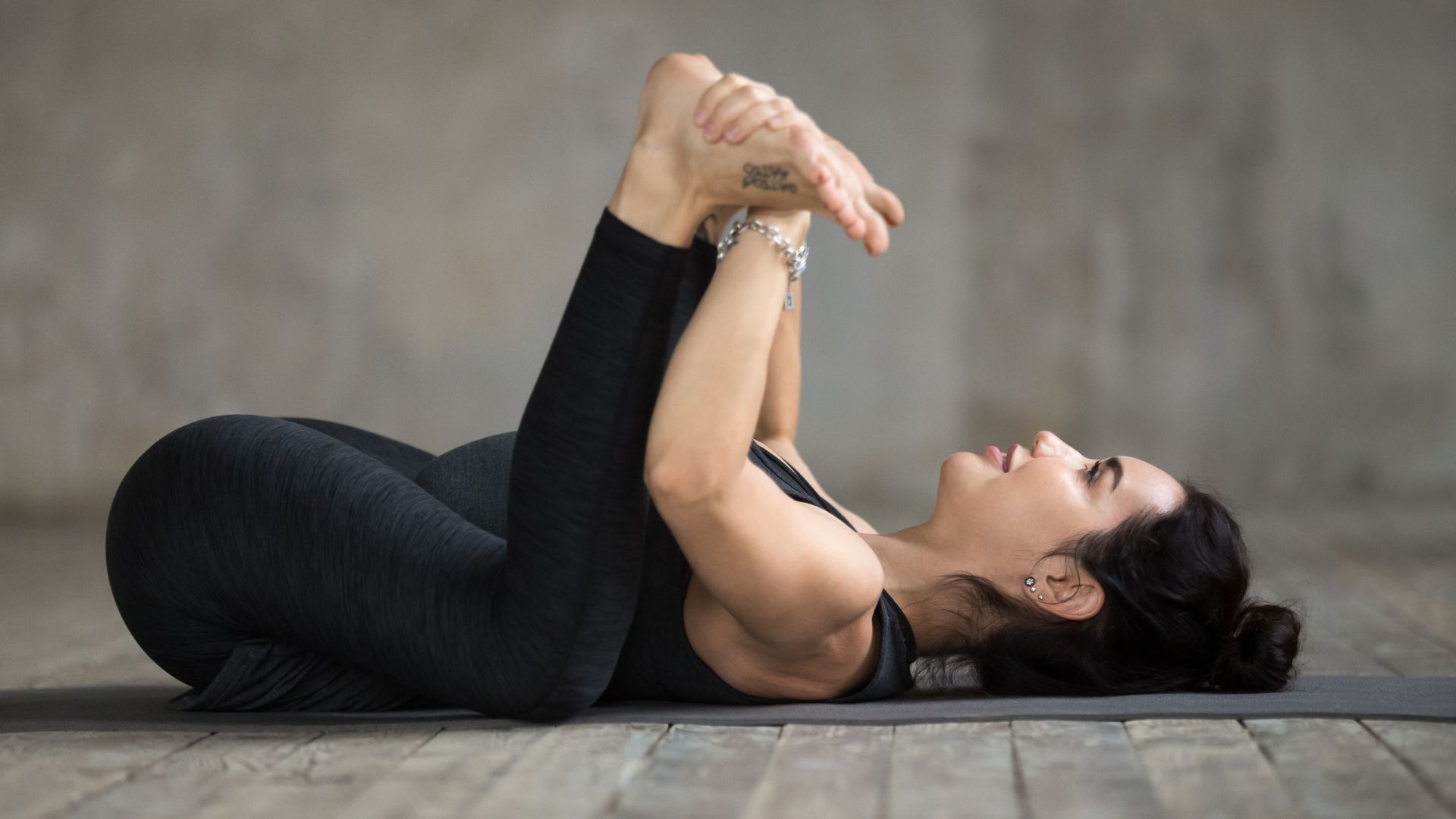
Usually performed at the end of a yoga class, this is a gentle and soothing pose to try and incorporate more frequently in your workouts or stretches. The pose opens your thighs, hips and groin, while also helping prevent lower back pain and realigns the spine.
To carry it out, lie flat on your back. With your head down, bend your knees toward your chest at a 90-degree angle.
Point the bottom of your feet up and then grab hold of them.
After holding your feet, gently spread your knees apart while flexing your heels into your hand and begin gently rocking from side to side (like a happy baby, hence the cute name).

Jack Slater is not the Last Action Hero, but that's what comes up first when you Google him. Preferring a much more sedentary life, Jack gets his thrills by covering news, entertainment, celebrity, film and culture for woman&home, and other digital publications.
Having written for various print and online publications—ranging from national syndicates to niche magazines—Jack has written about nearly everything there is to write about, covering LGBTQ+ news, celebrity features, TV and film scoops, reviewing the latest theatre shows lighting up London’s West End and the most pressing of SEO based stories.